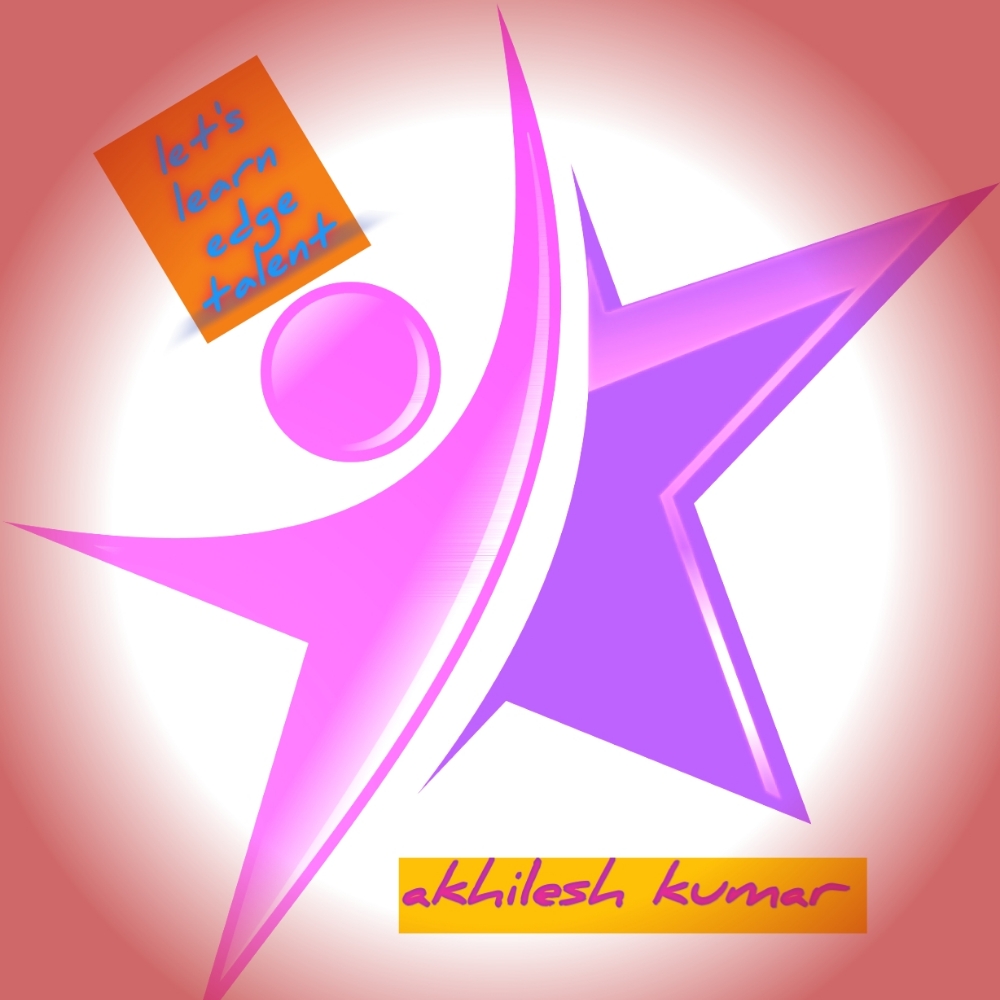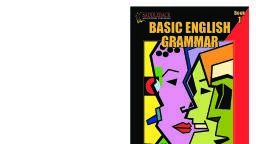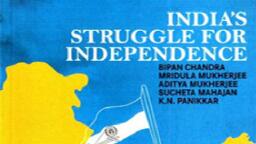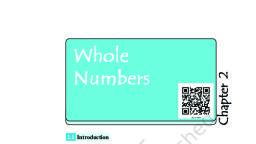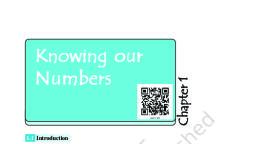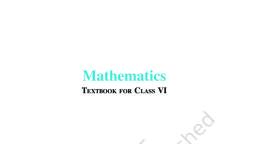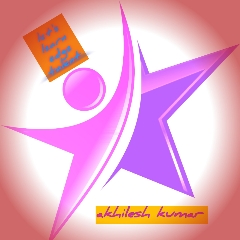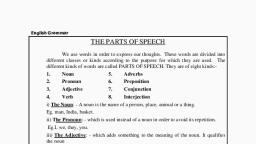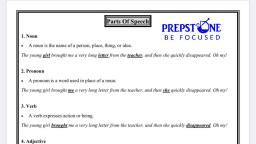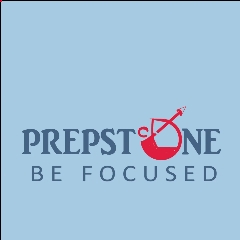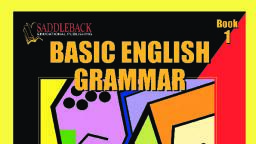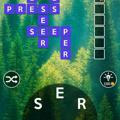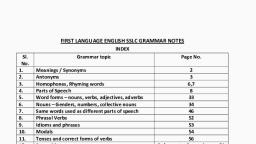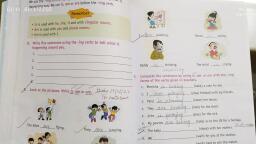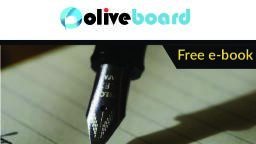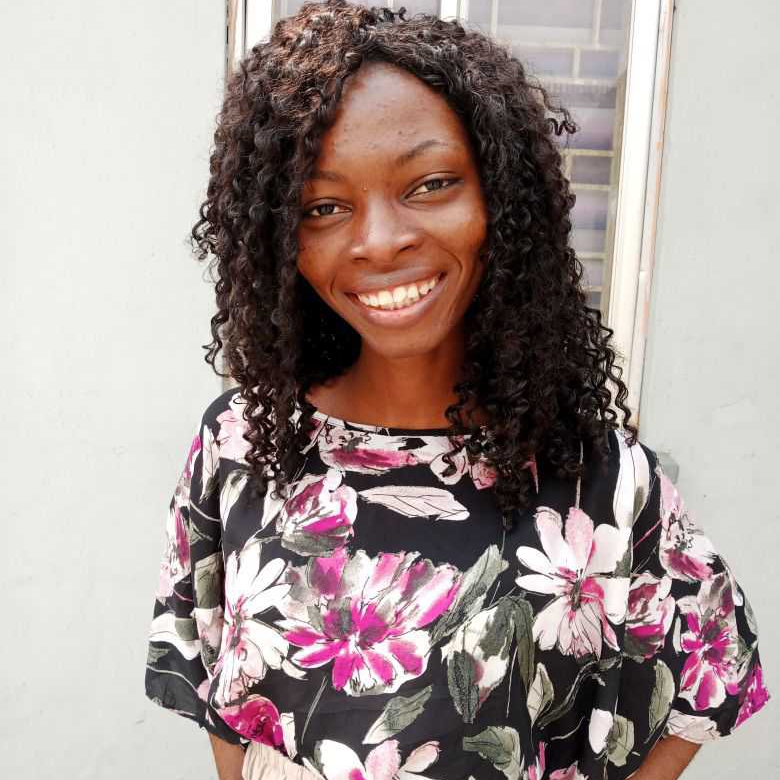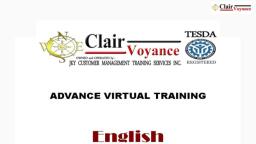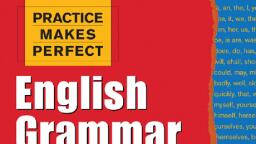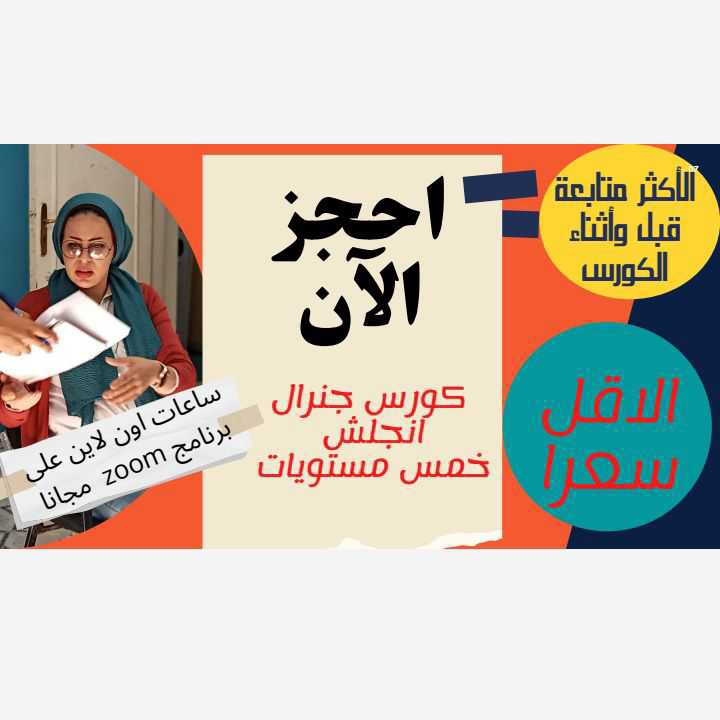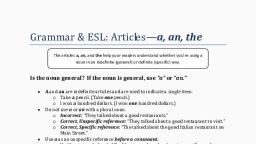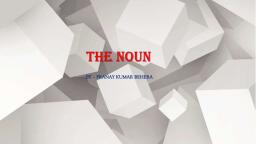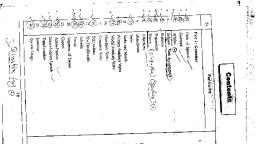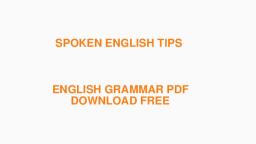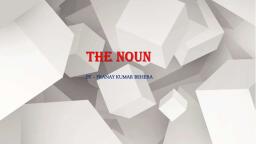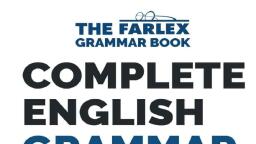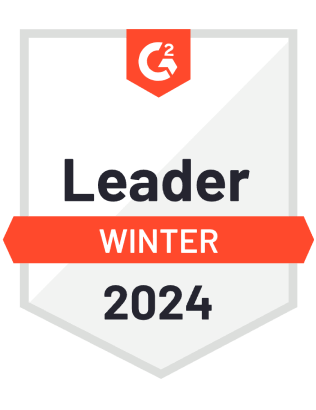Page 1 :
Book, , BASIC ENGLISH, GRAMMAR, 1, Younger students at beginning to intermediate levels will, greatly benefit from this step-by-step approach to English, grammar basics. This is the ideal supplement to your, language arts program whether your students are native, English speakers or beginning English language learners., Skill-specific lessons make it easy to locate and prescribe, instant reinforcement or intervention., • Illustrated lessons are tightly focused on core concepts, of grammar, • Nearly 70 practice exercises are included, for ready reinforcement, • A wealth of examples are provided on every topic, • Concise explanations are bolstered by extra grammar, tips and useful language notes, , BASIC ENGLISH GRAMMAR Book 1, , Book, , BASIC ENGLISH, GRAMMAR, , 1
Page 3 :
Three Watson, Irvine, CA 92618-2767, Web site: www.sdlback.com, , First published in the United States by Saddleback Educational Publishing, 3 Watson, Irvine,, CA 92618 by arrangement with Learners Publishing Pte Ltd, Singapore, Copyright ©2007 by Saddleback Educational Publishing. All rights reserved. No part of this book, may be reproduced in any form or by any means, electronic or mechanical, including photocopying,, recording, or by any information storage and retrieval system, without the written permission of the, publisher., ISBN 1-59905-201-6, Printed in the United States of America, 13 12 11 10 09 08 07 9 8 7 6 5 4 3 2 1
Page 4 :
Introduction, Grammar is a very old field of study. Did you know that the, sentence was first divided into subject and verb by Plato,, the famed philosopher from ancient Greece? That was, about 2,400 years ago! Ever since then, students all over, the world have found it worthwhile to study the structure, of words and sentences. Why? Because skill in speaking, and writing is the hallmark of all educated people., Lesson by lesson, this book provides basic instruction, in the eight parts of speech—nouns, pronouns, verbs,, adjectives, adverbs, prepositions, conjunctions, and, interjections—as well as the standard patterns of English, sentences., All students of English, be they native speakers or those, who are studying English as a second language, will, profit from the fundamental introduction and review of, grammar provided by SADDLEBACK’S BASIC ENGLISH, GRAMMAR 1 and 2. Helpful marginal notes throughout, the books have been provided to reinforce existing skills, and call attention to common problem areas., We wish you every success in your pursuit of English, proficiency.
Page 5 :
1 What is Grammar?, , 5, , 2 The Capital Letter, , 6, , 3 Nouns 8, Common Nouns, Proper Nouns, Singular Nouns, Plural Nouns, Collective Nouns, Masculine and Feminine Nouns, , 4 Pronouns, Personal Pronouns, Reflexive Pronouns, Interrogative Pronouns, Demonstrative Pronouns, , 5 Adjectives, Adjective Endings, Kinds of Adjectives, Comparison of Adjectives, , 6, , 8, 13, 21, 23, 34, 37, , 44, 47, 48, 49, 52, 54, 58, 65, 71, , The Articles, Demonstrative Determiners, Interrogative Determiners, Possessive Determiners, , 71, 73, 74, 75, , The Simple Present Tense, Am, Is and Are, The Present Progressive Tense, Have and Has, The Present Perfect Tense, , 98, 99, 104, 106, 108, 112, 113, 115, 120, , 8 Subject-Verb Agreement, , 123, , 9 Adverbs, , 127, , 44, , Determiners, , 7 Verbs and Tenses, , The Simple Past Tense, Regular and Irregular Verbs, Was and Were, The Past Progressive Tense, The Future Tense, Can and Could, May and Might, Do, Does and Did, Would and Should, , 79, 80, 83, 89, 93, 96, , 10 Prepositions, , 132, , 11 Conjunctions, , 135, , 12 Interjections, , 138, , 13 Sentences, , 139, , What is a Sentence?, 139, Kinds of Sentences, 140, The Imperative, 141, The Subject and the Object, 143, Direct and Indirect Objects, 144, Positive and Negative Sentences 146, Questions, 147, , 14 Punctuation, Period, Comma, Exclamation Point, Question Mark, Apostrophe, , 150, 150, 151, 152, 152, 153
Page 6 :
1, , What is Grammar?, , Here’s an old children’s rhyme about the eight parts of, speech of English grammar. It gives you an idea of what, grammar is about. Read and remember it., , Every name is called a noun,, Noun, , As field and fountain, street and town., , Pronoun, , In place of noun the pronoun stands,, As he and she can clap their hands., The adjective describes a thing,, As magic wand or bridal ring., , Adjective, , Most verbs mean action, something done,, Verb, , To read and write, to jump and run., How things are done the adverbs tell,, ition, Prepos, , As quickly, slowly, badly, well., , Adverb, , The preposition shows relation,, As in the street or at the station., Conjunctions join, in many ways,, Sentences, words, or phrase and phrase., The interjection cries out, “Heed!, , Conjunction, , An exclamation point must, follow me!”, �, , Interjection
Page 7 :
2, , The Capital Letter, , The capital letter is also called a big letter or upper- , case letter, or sometimes just a capital., A, , B, , C, , D, , E, , F, , G, , H, , I, , J, , K, , L, , M, , N O, , P, , Q, , R, , S, , T, , U, , V, , W, , X, , Y, , Z, , When do you use a capital letter?, 4 Use a capital letter for the first letter in a, sentence:, The dog is barking., Come here!, , 4 Always use a capital letter for the word I :, I am eight years old., Tom and I are good friends., 4 Use a capital letter for the names of people:, Alice, Tom, James, Kim, Snow White, , 4 Use a capital letter for the names of places:, National Museum, Bronx Zoo, London, Sacramento, , 4 Use a capital letter for festivals, holidays,, days of the week, months of the year:, New Year’s Day, Christmas, Labor Day, Mother’s Day, , Sunday, Monday, Friday, January, May, July, October, �
Page 8 :
Exercise 1, , Circle the letters that should be CAPITALS. Then write, the correct letter in the space above them., 1, 2, , , peter and i are good friends., we are going to chicago during our summer , vacation., , 3, , there is an interesting football game on sunday., , 4, , jason lives on thomson avenue., , 5 january is the first month of the year., , Exercise 2, , Look at the signs on the left. Can you find the , mistakes? Write the names correctly., hopkins hotel, , lincoln school, , orchard street, , newton road, , botanic gardens, , national library, , shea stadium, , �
Page 9 :
3, , Nouns, , Common Nouns, Nouns are divided into common nouns and proper nouns., Common nouns are words for people, animals, places,, or things., These are words for people. They are common nouns., artist, , Word File, Here are more words for people:, , actor, aunt, baby, baker, cook, dentist, doctor, giant, you kn, o, , w, , D, , id, , lawyer, judge, man, nurse, police officer, singer, soldier, teacher, , acrobat, , clown, astronaut, , ?, , Another word for astronaut is, spaceman or spacewoman., �
Page 10 :
These are words for animals. They are common nouns., eagle, zebra, , deer, , crocodile, bird, , bear, , Word File, Here are more words for animals:, , cat, cow, dog, dolphin, duck, fish, goat, �, , goose, hen, horse, mouse, parrot, shark, whale
Page 11 :
These are words for places. They are common nouns., , beach, , park, , Word File, Here are more words for places:, , library, shop, Everfresh Co., , 10, , airport, cave, church, farm, hill, hospital, hotel, house, island, mall, , market, mountain, playground, restaurant, school, seashore, stadium, supermarket, temple, zoo
Page 12 :
These are words for things. They are common nouns., , basket, bed, , drum, cake, , blanket, , Word File, Here are more words for things:, , bag, box, bread, can, chair, cot, cup, desk, door, egg, , gate, 11, , kite, ladder, lamp, picture, radio, television, train, truck, watch, window
Page 13 :
Exercise 1, , Underline the common nouns in these sentences., 1 There’s a little bird in the garden., 2 Who is your teacher?, 3 Don’t eat that rotten apple., 4 Kate has a lovely doll., 5 I like reading stories., 6 My father is a doctor., 7 Every child has a dictionary., 8 Rudy hates bananas., 9 The phone is ringing., 10 Here’s a book for you., , Exercise 2, , Here’s a mixed bag of words. Put each word under its , correct heading., swimmer, letters, mountain, granny, , People, , snail, flag, fox, taxi, , fire engine, river, hotel, gardener, , Animals, , Places, , 12, , clown, barber, parrot, camel, , Things
Page 14 :
Proper Nouns, Proper nouns are names for particular people, places or, things. They always begin with a capital letter., , Omar, , Beethoven, , Santa Claus, , Word File, Here are some more names, of people:, , Ali Baba, Florence Nightingale, Derek Jeter, Pauline, Johnny Depp, Patrick, Harry Potter, Pinocchio, Robin Hood, you kn, o, , w, , D, , id, , Lisa, , ?, , Your own name and the names, of your friends are proper, nouns too., 13, , Kim Lee
Page 15 :
The names of countries and their people are also, proper nouns., , American, , Egyptian, , Japanese, , Korean, , Indian, , Malay, , Italian, , Filipino, , Thai, , Pakistani, , Country, , People, , Country, , People, , America, Egypt, India, Italy, Japan, , Americans, Egyptians, Indians, Italians, the Japanese, , Korea, Malaysia, Pakistan, France, Thailand, , Koreans, Malaysians, Pakistanis, the French, Thais, , 14
Page 16 :
The names of towns, cities, buildings and landmarks, are proper nouns., , Egypt, Hong Kong, , the Great Wall of China, the Statue of Liberty, , Tokyo, Bangkok, London, New York, Paris, Beijing, , Sydney, , New Delhi , Denver, the Grand Canyon, Central Park, the Leaning Tower of Pisa, the Eiffel Tower, Brooklyn Bridge, Big Ben, Pike’s Peak, 15
Page 17 :
The days of the week and months of the year are proper, nouns., Days, Sunday, Monday, Tuesday, Wednesday, Thursday, Friday, Saturday, , Monday, , 2, , March, , Thursday, , Friday, , June, , r, , October, , 4, , 3, , Mar, ch, , 6, , March, , July, , day, , es, Wedn, , Tuesda, y, , March, , February, , e, Septemb, , 7, , Satu, , rda, y, , April, , August, , November, , December, , Months, January, February, March, April, May, June, July, August, September, October, November, December, , o, , w, , D, , Sunday, , March, , March, , 5, , May, , you kn, , March, , 1, , January, , id, , March, , ?, , January is the first month of the year., Sunday is the first day of the week., A table that shows the months, weeks and, days, 16
Page 18 :
The names of mountains, seas, rivers and lakes are, proper nouns., , Mount Everest, , the Thames, Lake Michigan, the Alps, the Dead Sea, Mount Fuji, , Niagara Falls, , you kn, o, , w, , D, , id, , the Himalayas, the Pacific Ocean, the Yellow River, , ?, , You often use the before names of oceans,, rivers, seas and ranges of mountains., Mount means mountain., It is often used in the names of mountains., , For example: Mount Everest, Mount St. Helens, The written short form for Mount is Mt., For example: Mt. Everest, Mt. Fuji, 17
Page 19 :
The names of festivals, some special events and holidays, are proper nouns, too., , Valentine’s Day, Father’s Day, , Halloween, , Word File, Here are more names of festivals and holidays:, , Christmas , Memorial Day, Labor Day , Independence Day, , Mother’s Day, April Fool’s Day, Thanksgiving Day , St. Patrick’s Day, 18, , New Year’s Day
Page 20 :
Exercise 1, , Underline the proper nouns in the following, sentences., 1 July is often the hottest month in summer., 2 One day Ali Baba saw the forty thieves hiding in a , cave., 3 Shawn and Ashley are going to the beach for a swim., 4 Mr. Lee is reading a book., 5 “I am your fairy godmother,” said the old woman to , Cinderella., 6 Uncle Mike is a lawyer., 7 Next Tuesday is a public holiday., 8 Many children enjoyed the movie Lion King., , Exercise 2, , Look at the words in the box. Which ones are common , nouns and which ones are proper nouns? Put each word , under its correct heading., Lisa, January, doctor, , bank, beach, month, , President Hotel, White Sand Beach, Dr. Wang, , Common Nouns, , United Bank, hotel, girl, , Proper Nouns, , 19
Page 21 :
Exercise 3, , Write C for common or P for proper on the blank, before each noun., 1 _______ the White House, 2 _______ the green dress, 3 _______ the tall building, 4 _______ the Empire State Building, 5 _______ the Yellow River, 6 _______ the muddy river, 7 _______ the governor, 8 _______ Governor Parker, 9 _______ the Oregon Trail, 10 _______ the winding trail, , Exercise 4, , Underline the nouns that should be capitalized. Circle the , nouns that should not be capitalized., 1 Robert louis Stevenson wrote treasure island., 2 The Capital of illinois is Springfield., 3 My Friends and I prefer Glittergums toothpaste., 4 Their Family visited Yellowstone national Park., 5 Juan and maria attend kennedy Middle school., 6 We had a Surprise Party for aunt Helen., 7 Spring and Fall are my favorite Seasons., 8 The Manager scolded his lazy Employees., , 20
Page 22 :
Singular Nouns, Nouns can be singular or plural. When you are talking, about one person, animal, place, or thing, use a singular, noun., , an owl, , a ship, a train, a woman, , Word File, These are also singular nouns:, , an airplane, a bicycle, a boy, a bus, a comb, a girl, a key, , a flower, , 21, , a letter, a map, a photograph, a refrigerator, a slide, a swing, a van
Page 23 :
Gr, , m ar H, elp, , am, , 4 Use a or an before singular nouns., Use an before words beginning with vowels, (a, e, i, o, u). For example, say:, , , , , , an axe, an egg, an envelope, an ice cream, , an igloo, an orange, an umbrella, an uncle, , 4 But some words don’t follow this rule. For example,, use a (not an) before these words that begin with u:, a uniform, , a university, , 4 Use a before words beginning with the other, letters of the alphabet, called consonants., For example, say:, , , , , , , a basket, a bowl, a car, a hill, a house, , a rainbow , a monster , a pillow , a watch , a zoo , , 4 But some words don’t follow this rule. For example, , use an (not a) before these words that begin with h:, an heir, an honor , an hour, , 22
Page 24 :
Plural Nouns, When you are talking about two or more people,, animals, places, or things, use plural nouns., Most nouns are made plural by adding -s at the end., star, , bats, , bat, , stars, mug, , Word File, Singular, bird, broom, camel, desk, doll, egg, flower, fork, game, lamb, nest, pen, photo, shirt, spoon, , Plural, birds, brooms, camels, desks, dolls, eggs, flowers, forks, games, lambs, nests, pens, photos, shirts, spoons, , fan, mugs, , cap, fans, caps, 23
Page 25 :
Some plural nouns end in -es., glass, brush, , bus, , glasses, , brushes, , buses, , Word File, , watch, , watches, , foxes, , am, , m ar H, elp, , Gr, , fox, , Singular, beach, branch, box, bush, church, dish, dress, sandwich, witch, , Plural, beaches, branches, boxes, bushes, churches, dishes, dresses, sandwiches, witches, , ch, , When the last letters of singular, nouns are ch, sh, s, ss or x,, you usually add -es to form, the plural., 24, , sh, s, ss, x, , +, es
Page 26 :
Some plural nouns end in -ies., butterflies, canaries, canary, butterfly, , Word File, , am, , Plural, babies, cherries, diaries, dictionaries, fairies, families, flies, ladies, libraries, puppies, stories, strawberries, , lilies, lily, , candies, candy, , m ar H, elp, , Gr, , Singular, baby, cherry, diary, dictionary, fairy, family, fly, lady, library, puppy, story, strawberry, , +, , i, Nouns like these are made, plural by changing y to i, and, adding -es., 25, , y, , es
Page 27 :
What if there is a vowel before the y?, In that case, add -s to form the plural., , s, , y, , key, turkey, keys, , turkeys, , tray, , Word File, Singular, chimney, cowboy, day, donkey, jersey, kidney, monkey, toy, trolley, valley, , trays, , 26, , Plural, chimneys, cowboys, days, donkeys, jerseys, kidneys, monkeys, toys, trolleys, valleys
Page 28 :
If a noun ends in -f, you often change f to v, and add -es., , am, , Singular, loaf, shelf, thief, wolf, , Plural, loaves, shelves, thieves, wolves, , v, , es, , f, Often nouns that end in -f, just, need -s to form the plural., , f, , Plural, calves, elves, halves, leaves, , m ar H, elp, , Gr, , Singular, calf, elf, half, leaf, , s, , Singular, Plural, Singular, Plural, chef, chefs, handkerchief handkerchiefs, chief, chiefs, roof, roofs, cliff, cliffs, sheriff, sheriffs , For some words that end in -f, the plural can be spelled, in two different ways., Singular, Plural, dwarf dwarfs or dwarves, hoof, hoofs or hooves, scarf, scarfs or scarves, , s, , f, , ves, , With some words that end in -fe, you change f to v, and add -s., , you kn, , o, , w, , D, , id, , Singular, knife, life, wife, , Plural, knives, lives, wives, , f, v e, , ?, , But you only add -s to giraffe to form the, plural., 27, , s
Page 29 :
If a noun ends in -o, you just add -s to form the plural., , a rhino, , rhinos, , Word File, , a kangaroo, , kangaroos, , Singular, a hippo, a video, a zoo, , Plural, hippos, videos, zoos, , But with some nouns that end in -o, you add -es to form, the plural., Word File, , m ar H, m, a, , elp, , Gr, , a flamingo, flamingoes, , Singular, a tomato, a potato, a hero, , Plural, tomatoes, potatoes, heroes, , With some nouns that end in -o, you can add, either -s or -es to form the plural., Singular, a mango, a mosquito, a zero, a buffalo, , Plural, mangoes, mosquitoes, zeroes, buffaloes, 28, , Plural, mangos, mosquitos, zeros, buffalos
Page 30 :
Some plural nouns don’t follow the -s rule. They don’t end in, -s, -es, -ies or -ves. Instead, the word changes form., , mouse, , mice, , goose, , geese, , Word File, Singular, child, man, ox, tooth, woman, you kn, o, , w, , D, , id, , Plural, children, men, oxen, teeth, women, , foot, , ?, , The plural of the mouse that you, use with your computer is either, mice or mouses., 29, , feet
Page 31 :
Some plural nouns are the same as the singular noun., , sheep, , sheep, , reindeer, , reindeer, , fish, , Word File, Singular, bison, deer, , fish, you kn, , o, , w, , D, , id, , ?, , You can use fishes as the plural of, fish when you are talking about, different kinds of fish: all the fishes, of the Pacific Ocean., 30, , Plural, bison, deer
Page 32 :
Some nouns are always plural., binoculars, goggles, , Word File, pants, pajamas, shorts, trousers, sandals, , pliers, , jeans, , you kn, o, , w, , D, , id, , scissors , sneakers, slippers, stockings, , ?, , Another word for spectacles, is glasses., , am, , m ar H, elp, , Gr, , spectacles, , You can make these plural nouns singular by, using a pair of:, a pair of binoculars, a pair of spectacles, a pair of goggles, a pair of jeans, a pair of shorts, a pair of pliers, , a pair of shoes, 31
Page 33 :
Exercise 1, Look at the words below. Do you know which ones, are singular and which are plural ? Put a checkmark, (✓) in the correct box., Singular Plural, word, pencils, books, fan, hat, children, kites, people, crab, foxes, , Exercise 2, Do you add -s or -es to these singular nouns to make , them plural? Write your answers on the lines., Singular, , Plural, , Singular, , Plural, , 1 desk, , 6 basket ___________, , 2 class, , 7 peach ___________, , 3 comb, , 8 belt, , ___________, , 4 mug, , 9 taxi, , ___________, , 10 box, , ___________, , 5 bus, 32
Page 34 :
Exercise 3, Do you change -y to -ies, or just add -s to make, these singular nouns plural? Write your anwers., Singular, , Plural , , Singular, , 1 key, , 6 toy, , 2 city, , 7 baby, , 3 butterfly, , 8 party, , 4 monkey, , 9 chimney, , 5 fly, , Plural, , 10 lady, , Exercise 4, All these singular nouns end with -o. Add either -s or -es , as you write the plurals on the line., Singular, , Plural Singular, , 1 video, , 6 radio, , 2 piano, , 7 hippo, , 3 mango, , 8 zoo, , 4 kangaroo, , 9 zero, , 5 rhino, , 10 photo, , 33, , Plural
Page 35 :
Collective Nouns, Collective nouns are words for groups of people,, animals or things., These are nouns for groups of people., a family, , a crew, an orchestra, , Word File, Here are some more groups, of people:, , am, , a gang, a group, a team, , m ar H, elp, , Gr, , an audience, a band , a choir , a class, , Many collective nouns can be used with a, singular or plural verb., For example:, My family was happy to see me., or, My family were happy to see me., , But the following collective nouns always take a plural verb:, cattle, people, the police, 34
Page 36 :
Here are more collective nouns that are used for groups, of people, animals or things., , a brood of chickens, , a band of musicians, a school of fish, , Word File, Here are some more, collective nouns:, , a bunch of keys, a class of pupils, a collection of books, a deck of cards, a fleet of ships, a flock of sheep, a gaggle of geese, a gang of robbers, a herd of cattle, a litter of cubs, a pod of whales, a pack of wolves, a pride of lions, a set of stamps, a swarm of bees, a troupe of actors, , a team of players, , a flight of steps, , 35
Page 37 :
Exercise, , Farmer John had several different kinds of animals, on his farm. Write the correct collective noun for, each group of his animals., , Farmer John had:, a, , of geese, , a, , of sheep, , a, , of cattle, , a, , of horses, , One day a, of coyotes tried to attack his animals., Farmer John yelled and waved a pitchfork to frighten them, away., 36
Page 38 :
Masculine and Feminine Nouns, Masculine nouns are words for men and boys, and, male animals., Feminine nouns are words for women and girls, and, female animals., rooster, bridegroom, , bride, , hen, lion, lioness, , Word File, , king, , Masculine, boy, man, prince, steward, waiter, , queen, 37, , Feminine, girl, woman, princess, stewardess, waitress
Page 39 :
Here are some more masculine and feminine nouns for, people., , you kn, o, , w, , D, , id, , Masculine, , Feminine, , actor, brother, emperor, father, gentleman, grandfather, grandson, headmaster, man, master, nephew, prince, son, steward, uncle, wizard, , actress, sister, empress, mother, lady, grandmother, granddaughter, headmistress, woman, mistress, niece, princess, daughter, stewardess, aunt, witch, , ?, , Masculine nouns belong to the, masculine gender., Feminine nouns belong to the, feminine gender., 38
Page 40 :
Here are some masculine and feminine nouns for male, and female animals., , Male, , Female, , chicken, cattle, deer, donkey, duck, fox, goose, horse, lion, sheep, tiger, , rooster, bull, buck, jack, drake, fox, gander, stallion, lion, ram, tiger, , hen, cow, doe, jenny, duck, vixen, goose, mare, lioness, ewe, tigress, , you kn, o, , w, , D, , id, , Animal, , ?, , Nouns that end in -ess and -ress often belong, to the feminine gender. For example:, actress stewardess, lioness tigress, princess waitress, 39
Page 41 :
Many nouns are used for both males and females., , dancers, , doctors, , scientists, , Word File, Nouns like these are used for, both males and females:, , accountants, artists , designers , engineers , lawyers , , am, , m ar H, elp, , Gr, , hairdressers, , parents, managers, pupils, singers, teachers, , We call these nouns common-gender nouns., , 40
Page 42 :
Words for things that are neither male nor female are, called neuter nouns., leaves, , bench, , fire, mirror, , waterfall, , Word File, Here are some neuter nouns:, , ball, building, broom, cake, computer, card, floor, 41, , forest, gymnasium, playground, rock, sky, socks, wind
Page 43 :
Exercise 1, , Fill in the blanks with the correct masculine or, feminine nouns., , 1, , Masculine, , Feminine, , master, , 2 uncle, 3, , niece, , 4, , lioness, , 5 tiger, 6, , empress, , 7 husband, 8 son, 9, , mother, , 10, , madam, , Exercise 2, , Fill in each blank with a suitable masculine or feminine , noun., , 1 The host and the ____________ welcomed their guests., 2 The steward and the ____________ look after the , passengers on the plane., 3 My uncle and ________ lived in Nebraska., 4 The king and the _________ had two children, a boy , and a ________. The prince was eight and the , _____________ was five., 5 Ladies and ______________ , welcome to our party this, evening., 42
Page 44 :
Exercise 3, Look at the words in the box. Write each word under, its correct heading., children, boy, mother, lamp, ram, , Masculine, , sun, son, queen, doctor, rooster, , Feminine, , witch, father, file, dancer, elf, , king, girl, teacher, wizard, fish, , Common Gender, , 43, , Neuter
Page 45 :
4, , Pronouns, , A pronoun is a word that takes the place of a common, noun or a proper noun. There are different kinds of pronouns., , Personal Pronouns, The words I, you, he, she, it, we and they are called, personal pronouns. They take the place of nouns and, are used as the subject of the verb in a sentence., My name is David. I am the youngest in the family., This is my father. He is a teacher., This is my mother. She is a lawyer., I have a brother and two sisters., They are Peter, Sharon and Jenny., I have a dog. It is called Lucky., Lucky, you are a good dog., Good morning, children! You may sit down now., , am, , m ar H, elp, , Gr, , My family and I live in a big city. We have an apartment., , The subject of a sentence is the person, animal,, place or thing that does the action shown by the, verb., 44
Page 46 :
The words me, you, him, her, it, us and them are also, personal pronouns. They also take the place of nouns., These pronouns are used as the object of the verb in a, sentence., I am standing on my head. Look at me., My mother is kind. Everybody likes her., Lisa, I told you to tidy your bed!, Sharon and Jenny! Dad is waiting for you!, Lucky and I are playing in the park. Dad is watching us., You must not play with the knife. Give it to me., Pick up your toys and put them away., , am, , Tom likes riding my bicycle., I sometimes lend it to him., , m ar H, elp, , Gr, , Baby birds cannot fly., Mother bird has to feed them., , The object of a sentence is the person, animal,, place or thing that receives the action shown by, the verb., 45
Page 47 :
Gr, , m ar H, elp, , am, , There are three groups of pronouns: first person,, second person and third person., , The person speaking is called the first person., The first-person pronouns are I or me (in the singular) and, we or us (in the plural)., The person spoken to is called the second person. The, second-person pronoun is you (in both singular and plural)., The person (or animal, or thing) spoken about is called the, third person. The third-person pronouns are he or him, she or, her, and it (in the singular), and they or them (in the plural)., The word I is always spelled with a capital letter., The pronoun he is used for men and boys, she for, women and girls, and it for things and animals., Here is a table to help you., Subject, , Object, , First person singular, Second person singular, Third person singular, , I, you, he, she, it, , me, you, him, her, it, , First person plural, Second person plural, Third person plural, , we, you, they, , us, you, them, , 46
Page 48 :
Reflexive Pronouns, The words myself, yourself, himself, herself, itself,, ourselves, yourselves and themselves are called, reflexive pronouns., They refer to the person or animal that is the subject of, the verb., I made this cake myself., Be careful with the knife. You’ll cut yourself., Michael is looking at himself in the mirror., Susan has hurt herself., Our cat washes itself after each meal., We organized the party all by ourselves., Come in, children, and find yourselves a seat., , am, , m ar H, elp, , Gr, , Baby birds are too young to look after themselves., , Here is a table to remind you about reflexive, pronouns., , First person, Second person, Third person, , Singular, , Plural, , (I,me) myself, (you) yourself, (he, him) himself, (she, her) herself, (it) itself, , (we,us) ourselves, (you) yourselves, (they, them) themselves, (they, them) themselves, (they, them) themselves, , 47
Page 49 :
Interrogative Pronouns, The words who, whom, whose, what and which are, called interrogative pronouns., These pronouns are used to ask questions., , Whom, , Who, Who is he talking to?, Who are those people?, , Whom are you playing with?, Whom is he talking to?, , Which, , Whose, , Which of these bags is yours?, Which do you prefer?, , Whose is this umbrella?, Whose are these gloves?, , What, , am, , m ar H, elp, , Gr, , What is your dog’s name?, What are you talking about?, What is the time?, Who can be used as the object of a verb as well, as the subject., Whom is used only as the object. For example,, you can say:, Who are you playing with?, or, Whom are you playing with?, 48
Page 50 :
Demonstrative Pronouns, The words this, these, that and those are called, demonstrative pronouns. They are showing words., Those are goats., That is John’s house., That is a mountain., Those are horses., What are those?, We can do better, than that., No, that’s not mine., You mean you won?, That’s amazing!, Hello, who is that, speaking, please?, Hello, is that you,, George?, , These are sheep., , m ar H, m, a, , elp, , Gr, , This is my house., This is a hill., These are donkeys., What is this?, Did you drop this?, Hi, Jane! This is Michael!, , You use this and these when you point to things, near you., You use that and those when you point to things, farther away., , Demonstrative pronouns can be singular or plural:, Singular, this, that, 49, , Plural, these, those
Page 51 :
Exercise 1, , Draw a line to join each of the subject pronouns , to the object pronoun that matches., , I, , he, , it, , she, , they, , you we, , us, , her, , you, , them, , me, , him it , , Exercise 2, , Fill in the blanks with the correct pronouns., 1, , , Peter and I are brothers. _______ share a bedroom , together., , 2 Sue isn’t well. Dad is taking _______ to see a doctor., 3 My brother is a teacher. _______ teaches English., 4 All his students like _______ very much., 5 Children, _______ are making too much noise!, 6 Who are those people? Where are _______ from?, 7 Mom is a doctor. _______ works in a hospital., 8 The sky is getting dark. _______ is going to rain., 9 John, we are all waiting for _______. Are you coming , with _______?, 10 May _______ borrow your pen?, 11, , , Yes, of course. When can you return _______ to , _______?, , 12 What are _______ reading, Jenny?, 50
Page 52 :
Exercise 3, , Fill in the blanks with the correct reflexive pronouns, from the box., yourselves, himself, , 1, 2, 3, 4, 5, 6, 7, 8, , themselves, yourself, , itself, ourselves, , myself, herself, , No one can help us. We have to help ____________., Jane always makes the bed by ____________., They painted the wall all by ____________., I hurt ____________ in the playground yesterday., John, you must behave __________ before your friends., Children, you must do the homework ____________., Tom defended ____________ against the bullies., The dog is scratching ____________., , Exercise 4, , Write the correct interrogative pronouns in the blanks to , complete the sentences:, 1 _______ is the matter with you?, 2 _______ invented the computer?, 3 _______ of the twins is older?, 4 _______ do you wish to speak to?, 5 _______ is this car in front of our house?, 6 _______ knows the answer?, 7 _______ came first, the chicken or the egg?, 8 _______ would you like to drink?, 9 _______ of them do you think will win the race?, 10 _______ is the word for a stamp collector?, 51
Page 53 :
5, , Adjectives, , An adjective is a describing word. It tells you more about, a noun. An adjective usually appears before the noun, it describes. Sometimes, though, the adjective appears, after the noun, later in the sentence., , a smart dog, an old building, a busy street, a dark corner, a deep sea, a large bed, It is windy., John’s handwriting is very neat., The sea is rough., All the players are very tall., The baby’s hands are very small., Sue’s drawing is beautiful., That problem is too difficult., Peter is very quiet today., 52, , a tall basketball player, , a low fence
Page 54 :
Exercise 1, , Underline the adjectives in the following sentences., 1, , There is an empty room upstairs., , 2 It’s a hot summer., 3 You are so kind., 4 Don’t be crazy., 5 This park is clean and green., 6 Many people exercise to keep healthy., 7 I think these eggs are rotten., 8 We are all bored. There isn’t anything to do., 9 The pupils don’t find the joke amusing., 10 James was absent because he was ill., , Exercise 2, , Fill in the blanks with suitable adjectives from the box., hot, high, , large, sweet, , short free, poor playful, , 1, , The ice cream is very _________., , 2, , It’s very _________ in summer., , 3, , The company is giving away _________ gifts to its , customers., , 4, , They live in a _________ house., , 5, , Jean is wearing a _________ skirt., , 6, , The climbers are climbing up a _________ mountain., , 7, , These puppies are very _________., , 8, , Many _________ people have no home., 53
Page 55 :
Adjective Endings, Adjectives have different endings., Some adjectives end in -ful or -less., , playful puppies, , m ar H, m, a, , elp, , Gr, , homeless people, , a beautiful dress , a careless driver, a faithful dog, a harmless insect, a useful tool , , careful, colorful, , An adjective that ends in -less is the opposite of, the same adjective that ends in -ful., For example:, , – careless, – colorless, , useful –, harmful –, , useless, harmless, , The -ful ending means having a lot of something., For example:, painful, hopeful, , =, =, , having a lot of pain, having a lot of hope, , The -less ending means without., For example:, leafless, =, sleeveless =, , without leaves, without sleeves, 54
Page 56 :
Some adjectives end in -y., , a dirty street, a noisy room, an oily pot, a sleepy passenger, a sunny day, , a stormy sea, , a muddy path, , Some adjectives end in -ive., an expensive necklace, an active child, an attractive hat, a creative toy, , talkative pupils, , Some adjectives end in -ing., a caring nurse, an interesting book, loving parents, matching clothes, a smiling face, , a cunning fox, , dazzling sunshine, 55
Page 57 :
Some adjectives end in -ly., , am, , a daily newspaper, , a friendly police officer, , m ar H, elp, , Gr, , a costly diamond ring, an elderly woman, lively kittens, a lonely boy, a lovely girl, a weekly magazine, , Many adverbs also end in -ly., , Here are some adjectives with the endings -able, -al,, -en, -ible, -ish and -ous., a broken chair, , a famous pop singer, childish behavior, a comfortable chair, a dangerous place, a foolish act, a horrible smell, a loveable koala, , a national costume, a musical instrument, a terrible mess, a woolen sweater, a wooden table, 56, , a poisonous snake
Page 58 :
Exercise 1, , Add the correct endings to turn these words, into adjectives., -y, , 1, , -ful, , peace, , -less, , -al, , 6 dirt, , 2 storm, , 7 music, , 3 mud, , 8 nation, , 4 forget, , 9 dust, , 5 spot, , 10 play, , Exercise 2, , Add the correct endings to turn these words, into adjectives., -en, -ish, , 1, , wind, , -y, -ous, , -ing , -ly, , 6 fool, , 2 gold, , 7 charm, , 3 friend, , 8 child, , 4 rot, , 9 love, , 5 danger, , 10 interest, 57
Page 59 :
Kinds of Adjectives, There are different kinds of adjectives., Some adjectives describe the qualities of nouns., , a cold drink, , a hot bun, , an ugly monster, , a fierce dog, , a loud crash, 58, , a beautiful rainbow, a clever monkey , a difficult question, happy children, a kind lady, a new car, an old house, a pretty girl, a rich family, a sad story, a strong man, a wicked queen
Page 60 :
Some adjectives tell you which place or country a person, or thing comes from, or belongs to. They are called, adjectives of origin., , Chinese kungfu, , an Indian temple, , a Mexican hat, , Dutch clogs, Australian apples, a Balinese dancer, the English language, the French flag, an Italian car, a Japanese garden, a Scottish kilt, Thai boxing, , A Filipino shirt, 59
Page 61 :
Some adjectives tell you the color of things., , Please get me some white paint., , The sky is gray., , The sea is blue., George is wearing brown shoes., I don’t like green apples., Carrots are orange., Flamingos are pink., Eggplants are purple., Roses are red., 60, , Your hands are black!
Page 62 :
Some adjectives tell you the size of the nouns they, describe., a big hat, broad shoulders, a high mountain, a large ship, a long bridge, a low ceiling, a narrow path, small animals, tiny insects, a wide street, , a huge balloon, , a fat sumo wrestler, a thin boy, , a short man, , you kn, o, , w, , D, , id, , ?, , The word tall describes people and narrow,, upright objects. For example, you can say:, a tall girl, , a tall bookcase, , The word high describes bigger or wider objects that reach, a great height. For example, you can say:, a high mountain, 61, , a high wall
Page 63 :
Numbers are adjectives, too. They tell you how many, people, animals, or things there are. Sometimes they are, called adjectives of quantity., , three princesses, , two princes, , one giant, , four mermaids, , five witches, , seven elves, six fairies, nine dwarfs, , eight puppets, eleven hens, twelve geese, thirteen birds, fourteen mice, , ten angels, fifteen frogs, sixteen snails, seventeen kittens, eighteen ants, 62, , nineteen lizards, twenty butterflies
Page 64 :
Other adjectives tell you something about quantity, without giving you the exact number., , some soldiers, a little ice cream, a little rice, not many people, too much salt, lots of insects, plenty of money, , a lot of books, , some food, Is there any milk?, , a few cups, , a few puppies, you kn, o, , w, , D, , id, , ?, , Adjectives that tell you about quantity are also, called quantifying determiners., 63
Page 65 :
Exercise, , Look at the underlined words in the following, sentences. Do you know what kinds of adjectives, they are?, In the blanks write C if the underlined words tell you , about color, S if they tell you about size, Ql if they tell , you about quality, O if they tell you about origin, or Qn if , they tell you about the number or quantity of things., 1 Dad has two pairs of shoes., , 2 One pair is brown and the other pair, is black., , ___, ___, ___, , 3 This is a very simple puzzle., , ___, , 4 What color is the American flag?, , ___, , 5 A kind fairy appeared before Cinderella., , ___, , 6 He is a proud man., , ___, , 7 There is some food left., , ___, , 8 Tom is wearing a blue T-shirt., , ___, , 9 Jack has ten marbles; Peter has twenty., , ___, , 10 How many marbles have Jack and Peter, altogether?, , ___, , 11 There is an Indian temple in the city., , ___, , 12 There is a large crowd outside the temple., , ___, , 13 My house is just a few miles from the, school., , ___, , 14 They are driving a small car., , ___, , 15 Sue likes those yellow and red balloons., , ___, , 64, , ___, , ___
Page 66 :
Comparison of Adjectives, When you compare two people or things, use the, comparative form of the adjective., Lots of comparative adjectives end in -er., faster, , fast, , smaller, , small, , bright, , am, , cheaper, clearer, louder, newer, older, richer, shorter, taller, slower, thicker, , m ar H, elp, , Gr, , brighter, , cheap, clear, loud, new, old, rich, short, tall, slow, thick, , The word than is often used with comparative, adjectives. For example, you might say:, Jack is taller than John., A sports car is faster than a motorbike., 65
Page 67 :
Use the superlative form of an adjective to compare, three or more nouns. Lots of superlatives end in -est., , dark, , thick, , darker, , darkest, , thicker, thickest, , Gr, , elp, , clean, cleaner, cleanest, easy, easier, easiest, fat, fatter, fattest, flat, flatter, flattest, heavy, heavier, heaviest, hot, hotter, hottest, narrow narrower narrowest, noisy, noisier, noisiest, simplest, simple, simpler, thin, thinner, thinnest, wet, wetter, wettest, long, longer, longest, m ar H, am, You often add the before the superlative form., For example, you say:, Mount Everest is the highest mountain in the, world., Peter is the tallest boy in his class., 66
Page 68 :
Gr, , m ar H, elp, , am, , 4 With adjectives that end in -e, add -r to form, the comparative, and -st to form the superlative., For example:, Comparative, Superlative, close, closer, closest, largest, large, larger, safe, safer, safest, wide, wider, widest, , 4 Some adjectives have only one syllable, end with a, consonant, and have a single vowel before the , consonant. With these adjectives, double the last letter, before adding –er to form the comparative, and -est to, form the superlative. For example:, , big, dim, mad, sad, , Comparative, , Superlative, , bigger, dimmer, madder, sadder, , biggest, dimmest, maddest, saddest, , 4 Some adjectives have two syllables and end in -y. With, these adjectives change the y to i. Then add -er to form, the comparative, and -est to form the superlative., For example:, Comparative, Superlative, busy, dirty, happy, pretty, , busier, dirtier, happier, prettier, 67, , busiest, dirtiest, happiest, prettiest
Page 69 :
With some adjectives, you use more to make the, comparative form, and most to make the superlative, form., , more beautiful, , most beautiful, , active, charming, cheerful, comfortable, delicious, , more active, more charming, more cheerful, more comfortable, more delicious, , most active, most charming, most cheerful, most comfortable, most delicious, , id, , you kn, , o, , w, , D, , beautiful, , ?, , Adjectives that form their comparative and, superlative with more and most are usually, adjectives with two or more syllables, or, sounds. For example:, ac-tive, ex-pen-sive, beau-ti-ful, fa-mous, charm-ing, for-tu-nate, cheer-ful, in-tel-li-gent, com-fort-a-ble, pow-er-ful, de-li-cious, val-u-a-ble, 68
Page 70 :
The comparative and superlative forms of some, adjectives are completely different words., , good, , little, , better, , less, , least, worse, less, more, more, , worst, least, most, most, , m ar H, elp, , Gr, , bad, few, many, much, , am, , best, , With these adjectives, you don’t add -er or more, to form the comparative, or -est or most to form, the superlative., 69
Page 71 :
Exercise 1, , Fill in the blanks with the correct comparative and , superlative forms of the following adjectives., , , Comparative, , Superlative, , hard, cold, soft, tall, rich, mad, funny, big, sad, busy, noisy, , Exercise 2, , Fill in the blanks with the correct comparative and , superlative forms of the following adjectives., , , Comparative, , foolish, harmful, poisonous, valuable, difficult, generous, , 70, , Superlative
Page 72 :
6, , Determiners, , Determiners are words such as this, those, my, their,, which. They are special adjectives that are used before, nouns., , The Articles, The words a, an and the belong to this group of words, called determiners., The words a and an are called indefinite articles. You, can use them with singular nouns to talk about any, single person or thing., Can you hear a, bird singing ?, , am, , m ar H, elp, , Gr, , Do you wear a, uniform to school?, , This is a picture of an elephant., Rudy is reading a book., Mom bought me a new dress today., You will need an umbrella when you go out., She eats an apple a day., , The article an is usually used before words, beginning with vowels. The article a is used, before words beginning with consonants., 71
Page 73 :
The word the is called the definite article. Use the, before a noun when you are talking about a certain, person or thing., , The telephone is ringing., , Where’s the cat?, I think she is under the bed., , Tom has won the race., , am, , The ice is melting., , m ar H, elp, , Gr, , Granny is sitting in the garden., The street is very busy today., The sky is getting dark., , You also use the before a noun when there, is only one. For example:, the sun, the moon, the sky, the front door of my house, 72
Page 74 :
Demonstrative Determiners, The words this, that, these and those are determiners., They are used to tell which thing or person you mean., These words are called demonstrative determiners, or, demonstrative adjectives., , I am keeping these books., I am selling those books., , This ice cream is delicious., How much is that racket?, What is that animal?, Bring me that ball., Would you like these apples?, , am, , m ar H, elp, , Gr, , James lives in this house., , You use this and these to point to people or, things near you., , You use that and those to point to people or things that are, farther from you., You use this and that before singular nouns., You use these and those before plural nouns., Here’s a table to help you remember the rules:, Singular, this, that, , Plural, these, those, 73
Page 75 :
Interrogative Determiners, Use the words what, which and whose before nouns, to ask about people or things. These words are called, interrogative determiners or interrrogative adjectives., , What size do you wear?, , What kind of bird is that?, , What time is it?, What color is her hair?, What kind of clothes do you like to wear?, Which school do you go to?, Which doll is your favorite?, Which road leads to the zoo?, Which runner is the winner?, Do you know which girl won the prize?, , what, , Whose footprints are these?, , which, , Whose baby is this?, , whose, , Whose dog was barking in the middle of the night?, 74
Page 76 :
Possessive Determiners, The words my, your, his, her, its, our, their are called, possessive determiners or posessive adjectives. Use, these words before nouns to say who something, belongs to., , I lent Margaret my guitar., , m ar H, m, a, , elp, , Gr, , Is this your house?, The dentist asked, Robert, your handwriting is difficult to read., Michael is showing his tortoise to his friends. his patient to open, her mouth., My sister lost her way in the city., The lion is chasing its prey., , Here is a table to help you remember the, possessive determiners., , First person, Second person, Third person, , Singular, my, your, his, her, its, 75, , Plural, our, your, their, their, their
Page 78 :
Exercise 3, , Fill in the blanks with the correct demonstrative, adjectives., 1, , Come and look at ________ insects., , 2 Stop ________ man!, 3 I was in fifth grade last year. I am in sixth grade, , , ________ year., , 4 Bring ________ chairs here., 5 ________ ice cream is delicious., 6, , Can you see ________ stars in the sky?, , Exercise 4, , Are the underlined words demonstrative adjectives or , demonstrative pronouns? Write DA (for demonstrative , adjectives) or DP (for demonstrative pronouns) in the , blanks., 1 This house has five bedrooms., , _______, , 2 Who is that man?, , _______, , 3 This is our school., , _______, , 4 These are wild animals., , _______, , 5 That is right., , _______, , 6 What’s that noise?, , _______, , 7 These books are Jane’s., , _______, , 8 Those books belong to me., , _______, , 9 These are donkeys., , _______, , 10 Those are horses., , _______, 77
Page 79 :
Exercise 5, , Choose the correct possessive adjectives from the, box to fill in the blanks., my, its, , 1, , his, our, , your, their, , her, , Is this Jane’s dog? Yes, this is ______ dog., , 2 The dog is chasing ________ own tail., 3 Peter, is ________ father at home?, 4 Rudy is showing ________ stamps to Ali., 5 I am going to ________ aunt’s house this evening., 6 We always keep ________ classroom clean., 7 Children, have you all finished ________ homework?, 8 The children are proud of ________ school., , Exercise 6, , Choose the correct interrogative adjectives from the box, to fill in the blanks., what, , 1, , which, , whose, , ________ kind of animal is that?, , 2 ________ runner is the winner?, 3 ________ is the matter?, 4 ________ desk is this?, 5 ________ handphone is ringing?, 6 ________ is your name?, 7 ________ twin is taller?, 8 ________ hand is holding the pebble?, 78
Page 80 :
7, , Verbs and Tenses, , Most verbs are action words. They tell you what people,, animals or things are doing., knock, , burst, climb, , dig, , read, , Word File, act, bake, bend, buy, close, cook, cross, fall, fly, go, grow, hop, , drop, , 79, , jump, move, pull, run, shout, sing, sit, slide, stand, start, swim, walk
Page 81 :
The Simple Present Tense, The simple present tense expresses a general truth or, a customary action., , The sun rises in the east., Uncle Joe wears glasses., , Ducks love water., , The children go to school by bus., , Mary enjoys singing., Peter sometimes lends me his bike., Cows eat grass., Monkeys like bananas., Tom collects stamps., The earth goes around the sun., It often snows in winter., We always wash our hands before meals., We eat three meals a day., Father takes the dog for a walk every morning., 80
Page 82 :
Use the simple present tense to talk about things that are, planned for the future., , Melanie starts, school tomorrow., , Next week I go to, summer camp., , The train departs, in five minutes., We join the senior scout troop in July this year., My big brother leaves school at 4 o’clock., The new supermarket opens next Friday., The new grammar book comes out in September., Grandad retires next year., We fly to London next Thursday., The plane lands at 5:30 P.M., We move to our new house in a month., My big sister begins her summer job next week., 81
Page 83 :
Exercise 1, , Underline the verbs in the following sentences., 1, , The children go to school by bus., , 2 Bats sleep during the day., 3 These toys belong to Kathy., 4 Every pupil has a good dictionary., 5 Polar bears live at the North Pole., 6 Most children learn very fast., 7 Mr. Thomas teaches us science., 8 The earth goes around the sun., 9 We never cross the street without looking., 10 Many stores close on Sunday., , Exercise 2, , Fill in the blanks with the simple present tense of the, verbs in parentheses., 1, , Winter ________ after autumn. (come), , 2 A dog ________. (bark), 3 You ________ tired. (look), 4 Everyone ________ mistakes. (make), 5 Ali ________ in a department store. (work), 6 Judy ________ English very well. (speak), 7 Tim’s knee ________. (hurt), 8 Monkeys ________ bananas. (like), 9 Kate always ________ sandwiches for lunch. (eat), 10 He ________ very fast. (type), 82
Page 84 :
Am, Is and Are, The words am, is, are are also verbs, but they are not, action words. They are the simple present tense of the, verb be., Use am with the pronoun I, and is with the pronouns he,, she and it. Use are with the pronouns you, we and they., , It is a donkey., It is not a horse., , It is very hot today., It is not very comfortable., , the verb ‘be’, , am, , I am Peter. I am not Paul., , is, , are, , She is Miss Lee. She is a teacher., He is my father. He is a doctor. He is not a lawyer., You are a stranger. You are not my friend., We are in the same class, but we are not on the same team., They are good friends. They are not enemies., 83
Page 85 :
Gr, , m ar H, elp, , am, , Here’s a table to help you remember how to, use am, is and are:, , First person, Second person, Third person, , Singular, , Plural, , I am, you are, he is, she is, it is, , we are, you are, they are, they are, they are, , Learn these short forms called contractions:, I am, you are, he is, she is, it is, am not, is not, are not, , =, =, =, =, =, =, =, =, , I’m, they are = they’re, you’re, we are = we’re, he’s, she’s, it’s, aren’t (only in questions), isn’t, aren’t, , In questions, use aren’t as a contraction of am not. For, example, you can say:, I’m taller than you, aren’t I?, But in a statement you say:, I’m not as old as you., , 84
Page 86 :
Use the verb is with singular nouns and are with plural, nouns., , The camel is a desert animal., , Lambs are baby sheep., , Vegetables and fruit, are healthy foods., , Singular, nouns, , Kenneth is a lawyer., Rex is a clever dog., A duck is a kind of bird., , The playground is full of people today., My house is near the school., These questions are too difficult., The balloons are very colorful., Those people are very busy., Dad and Mom are in the kitchen., 85, , is, , Plural, nouns, , are
Page 87 :
Use is and are with the word there to say what you can, see and hear., , There is a castle on the hill., There are some clouds in the sky., , There is a wasps’ nest, in the tree., , There is a fence around the school., There are a lot of books in the library., There are two guards at the gate., Is there any food in the fridge?, Are there any apples left on the tree?, How much rice is there?, There are a few sharks in the bay., There are enough candies for everyone, aren’t there?, , am, , m ar H, elp, , Gr, , There are two pigeons on the roof., , Learn this contraction:, there is, , =, , there’s, 86
Page 88 :
Exercise 1, , Fill in the blanks with am, is or are., 1, , They ________ my good friends., , 2 He ________ a soldier., 3 You ________ taller than Charlie., 4 She ________ ill., 5 We ________ very hungry., 6 It ________ a sunny day., 7 I ________ angry with Joe., 8 You ________ all welcome to my house., , Exercise 2, , Fill in the blanks with is or are., 1, , John’s dog ________ very friendly., , 2 Robert ________ ten years old., 3 These flowers ________ very pretty., 4 The two schools ________ close to each other., 5 Math ________ not a very difficult subject., 6 ________ dinner ready?, 7 This computer ________ very easy to use., 8 All the windows ________ open., 9 Sue and Jane ________ neighbors., 10 His hair ________ curly., 87
Page 89 :
Exercise 3, Fill in the blanks with There is or There are., 1, , ______________ a fence around the barn., , 2 ______________ trees along the road., 3 ______________ a rainbow in the sky., 4 ______________ lots of parks in our town., 5 ______________ nothing in the cupboard., 6 ______________ not many bedrooms in the new house., 7 ______________ lots of mistakes on your test paper., 8 ______________ a wasps’ nest in the tree., 9 ______________ ants in the cookies., 10 ______________ many different kinds of animals, , 11, , in the zoo., , ______________ plenty of food on the table., , 12 ______________ a church on the hilltop., 13 ______________ no more water in the pool., 14 ______________ too many people on the beach., 15 ______________ only a few customers in the shop., , 88
Page 90 :
The Present Progressive Tense, When do you use the present progressive tense? To talk, about actions in the present, or things that are still going, on or happening now., I am writing, a letter., Mom is knitting, a sweater, for Sally., , The phone is ringing., I’m playing chess with my friend., She’s riding a horse., He’s taking a walk in the park., The man’s counting the money., They are practicing tai chi., We’re rushing to the airport to meet Mr. Smith., They are still sleeping., They are swimming in the sea., What are they doing?, What’s happening?, Why aren’t you doing your homework?, Aren’t I sitting up straight?, 89
Page 91 :
am, is, are, , elp, , Gr, , m ar H, am, , +, verb ing, , 4 Form the present progressive tense like this:, am + present participle, is + present participle, are + present participle, , 4 The present participle is the form of a verb ending with, -ing. For example:, show +, come +, , ing =, ing =, , showing, coming, , 4 You have to double the last letter of some verbs before, you add -ing. For example:, get + ing = getting, nod + ing = nodding, jog + ing = jogging, , rob + ing = robbing, stop + ing = stopping, swim + ing = swimming, , 4 Notice that the verbs above are all short verbs of just, one syllable., They all end with a consonant such as b, d, g, m, p, t, and have only one vowel before the consonant., , 4 If a verb ends in e, you usually have to drop the e , before you add -ing. For example:, chase, cycle, drive , smile, , +, +, +, +, , ing, ing, ing, ing, , =, =, =, =, , chasing, cycling, driving, smiling, , 90
Page 92 :
Use the present progressive tense to talk about things you, have planned to do, or things that are going to happen in, the future. To form the present progressive tense, use am,, is and are as helping verbs or auxiliary verbs., , When are you taking, me to the zoo?, , We are having a barbecue, later this evening., , We are going camping tomorrow., I’m starting piano lessons soon., Jim’s parents are taking him to Texas next week., My favorite TV program is starting in a minute., All our friends are coming., Who’s bringing salad for the barbecue? I am., I am visiting Joe next week., Where are you going for your vacation?, What are we eating for dinner?, 91
Page 93 :
Exercise 1, , Write the present participle of these verbs on the, blanks., 1, , come ____________ 7 go, , 2 run, , ____________ 8 ask, , ____________, ____________, , 3 sleep ____________ 9 catch, , ____________, , 4 fall, , ____________, , 10 write, , ____________, , 5 jump, , ____________, , 11, , drop, , ____________, , 12 bring, , ____________, , 6 climb ____________, , Exercise 2, , Fill in the blanks with the present progressive tense of the , verbs in parentheses., 1, , They ________________ the roller-coaster ride. (enjoy), , 2 Jill ________________ her hair. (wash), 3 It ________________ dark. (get), 4 The dentist ________________ Sue’s teeth. (examine), 5 The train ________________ through the tunnel. (pass), 6 The men _______________ very hard in the sun. (work), 7 What _________ the theater _________ today? (show), 8 We ________________ a snowman. (make), 9 The plane ________________ above the clouds. (fly), 10 The teachers ________________ a meeting. (have), 92
Page 94 :
Have and Has, The verbs have and has are used to say what people own, or possess. They are also used to talk about things that, people do or get, such as illnesses. These words are the, simple present tense of the verb have., , Peter has a sore knee., , We have breakfast at 7:00 A.M., , He has a lot of stamps., She has long hair., Our house has large windows., I have a younger brother., We have art lessons on Mondays., Have a cookie, if you like., Dad has a cold., Jenny often has sandwiches for lunch., 93, , Monkeys have, long tails.
Page 95 :
Gr, , m ar H, elp, , am, , Use has with he, she, it, and with singular nouns. Use, have with I, you, we, they, and with plural nouns., Here is a table to help you remember the rules:, Singular Plural, First person, Second person, Third person, , I have, you have, he has, she has, it has, , Learn these contractions:, I have, you have, he has, she has, it has, we have, they have, , =, =, =, =, =, =, =, , I’ve, you’ve, he’s, she’s, it’s, we’ve, they’ve, , have not, has not, , =, =, , haven’t, hasn’t, , 94, , we have, you have, they have, they have, they have
Page 96 :
Exercise 1, , Fill in the blanks with have or has., 1, , We ________ a new science teacher., , 2 He ________ a bad temper., 3 I often ________ fruit for dessert., 4 You ________ a good chance of winning the prize., 5 She always ________ oatmeal for breakfast., 6 The broom ________ a blue handle., 7 They never ________ any problem with tests., , Exercise 2, , Fill in the blanks with have or has., 1, , The girls ________ golden hair., , 2 An insect ________ six legs., 3 Dad ________ his cell phone with him., 4 The children ________ a new swing set., 5 Many poor people ________ nothing to eat., 6 Chicago ________ a very big airport., 7 A triangle ________ three sides., 8 The man ________ two daughters., 9 James ________ a toothache., 10 All the passengers ________ their tickets., 95
Page 97 :
The Present Perfect Tense, Use the present perfect tense to talk about happenings, in the past that explain or affect the present. The verbs, have and has are used as “helping” or auxiliary verbs to, form the present perfect tense., , Sam has scored two goals., I’ve just finished my shower., It’s been very wet today., , Uncle Tom has lost his wallet., John has gone out., The Lees have moved to Ohio., , Kim’s cut, her finger., , It has not rained for months., Have you found your keys yet?, Tim has made two spelling mistakes., , am, , m ar H, elp, , Gr, , They have opened a new shop., , To form the present perfect tense join have or, has to the past participle of the verb:, have, has, , +, +, , past participle, past participle, , The past participle of a regular verb usually ends in -ed,, just like the simple past tense. But the past participles of, irregular verbs don’t follow this rule., 96
Page 98 :
Exercise 1, , Write the past participle of these verbs on the, blanks., 1, , break _______________ 6, , buy, , _______________, , 2 drink _______________ 7, , find, , _______________, , 3 cut, , _______________ 8, , draw _______________, , 4 do, , _______________ 9, , hear _______________, , 5 sing _______________ 10, , know _______________, , Exercise 2, , Fill in the blanks with the present perfect tense of the , verbs in parentheses., 1, , Dad ______________ his car key. (lose), , 2 All the guests ______________. (arrive), 3 Tony ______________ a goal. (score), 4 Peter _____________ in the tent several times. (sleep), 5 It ____________ not ____________ for two months. (rain), 6 Some prisoners ______________ from the prison. (escape), 7 The plane ______________ at the airport. (land), 8 John ______________ a puppet. (make), 9 Dad and I ______________ a big fish. (catch), 10 I ______________ this movie twice. (see), 97
Page 99 :
The Simple Past Tense, Use the simple past tense to talk about things that, happened in the past. The simple past tense is also, used to talk about things that happened in stories., , The wicked Queen gave, Snow White a poisoned apple., , Pinocchio’s nose grew longer, every time he told a lie., Dinosaurs lived, millions of years ago., , I bought a new camera last week., Joe learned to play the guitar very quickly., We drove to the safari park last weekend., The giant panda gave birth to a cub last night., Yesterday Dad took me to the carnival., The plane landed a few minutes ago., The children visited a farm during the holidays., Who invented the computer?, Jack and Jill went up the hill., Little Red Riding Hood decided to visit her grandmother., The Three Bears found Goldilocks asleep in their house., 98
Page 100 :
Regular and Irregular Verbs, The simple past tense of most verbs ends in -ed. These, verbs are called regular verbs., , Spelling File, Base Form, aim, bake, open, happen, pull, push, scold, shout, visit, wait, walk, work, , Simple Past, aimed, baked, opened, happened, pulled, pushed, scolded, shouted, visited, waited, walked, worked, , Who closed all, the windows?, , It snowed last night., , Mom opened the door for us., Sally petted the dog., That event happened long ago., We visited our uncle last week., They walked to school together yesterday., They worked until twelve last night., Dad tried to fix the light., William Tell aimed at the apple on his son’s head., 99
Page 101 :
Gr, , m ar H, elp, , am, , 4 The simple past tense is usually formed by adding -ed, to the verb. For example:, jump + ed = jumped, laugh + ed = laughed, , lift + ed = lifted, look + ed = looked, , 4 If the verb ends with -e, just add -d. For example:, agree + d, die, +d, , = agreed, = died, , hate + d, live + d, , = hated, = lived, , 4 Remember these spelling rules:, You must double the last letter of some verbs before, adding -ed. For example:, fan, grab, nod, , + ed = fanned, + ed = grabbed, + ed = nodded, , pat + ed = patted, rip + ed = ripped, slam + ed = slammed, , 4 Notice that the verbs above are all short verbs of just, one syllable. They all end with a consonant such , as b, d, m, n, p, t, and have only a single vowel , before the consonant., , 4 With verbs that end in -y, change the y to i before , adding -ed. For example:, bury + ed = buried, carry + ed = carried, cry, + ed = cried, , fry + ed = fried, hurry + ed = hurried, try + ed = tried, , 100
Page 102 :
The simple past form of some verbs does not end in -ed., Such verbs are called irregular verbs., The simple past tense of some irregular verbs does not, change at all., , David hurt his foot when he, jumped over the drain., , The worker cut down the, tree this morning., , Spelling File, Base Form, beat, burst, cost, cut, hit, hurt, put, read, split, shut, , Her ring cost only 10 dollars., He hit the ball over the net., Dad read to us last night., He shut the door., I put some sugar in my, coffee., 101, , Simple Past, beat, burst, cost, cut, hit, hurt, put, read, split, shut
Page 103 :
Most irregular verbs, however, take a different form in, the simple past tense., , Spelling File, Base Form, bend, break, bring, buy, fall, fly, get, hear, keep, lose, sell, shoot, sleep, , Sam bent the stick in two., , Simple Past, bent, broke, brought, bought, fell, flew, got, heard, kept, lost, sold, shot, slept, , Tom shot and scored a goal., I lost my pen on the bus., We sold our car last week., The baby slept right thought the night., Peter got a watch for his birthday., I heard a noise in the night., He brought his pet mouse to school., My book fell off the desk., 102, , A bird flew into, the classroom.
Page 104 :
Exercise 1, , Write the simple past tense of these verbs on the, blanks., 1, , take, , ____________ 7 tell, , ____________, , 2 walk, , ____________ 8 write, , ____________, , 3 rain, , ____________ 9 sit, , ____________, , 4 shut, , ____________, , 10 read, , ____________, , 5 open, , ____________, , 11, , close, , ____________, , 6 cry, , ____________, , 12 cook, , ____________, , Exercise 2, Fill in the blanks with the correct simple past tense of the , verbs in parentheses., 1, , She ___________ home alone. (go), , 2 The wind ___________ throughout the night. (blow), 3 An apple ___________ on his head. (drop), 4 The Princess’s ball ___________ into the well. (roll), 5 A frog __________ into the well and ___________ it, back to her. (jump/bring), 6 Jack ___________ the highest grade in his English, class. (get), 7 The party ___________ at 8:00 P.M. (begin), 8 He __________ his old car and __________ a new, one. (sell/buy), 9 Jack ___________ up the ladder carefully. (climb), 10 Who ___________ all the windows? (shut), 103
Page 105 :
Was and Were, The verbs was and were are also forms of the verb be., Was is the simple past tense of am and is. Use was with, the pronouns I, he, she and it, and with singular nouns., Edison was a, famous inventor., , Beethoven was a German composer., Sue was at the library this morning., It was very wet on Monday., Ten years ago she was only a baby., He was not well yesterday., Last year she wasn’t tall enough to reach, the high shelf., Samantha was second in the race,, wasn’t she?, , Were is the simple past tense of are. Use were with the, pronouns you, we and they, and with plural nouns., These were my best jeans., The Romans were brave soldiers., They were third in the wheelbarrow race., There weren’t any clouds in the sky., Were you still in bed when I phoned?, We were on the same school team., Those were my best jeans., 104
Page 106 :
Gr, , m ar H, elp, , am, , Here is a table to help you remember the rules:, Singular, First person, Second person, Third person, , I was, you were, he was, she was, it was, , Plural, we were, you were, they were, they were, they were, , Here’s a table to show you the different forms of the verb be:, Simple Present, , Simple Past, , First person singular, Second person singular, Third person singular, , am, are, is, , was, were, was, , First person plural, Second person plural, Third person plural, , are, are, are, , were, were, were, , Learn these contractions:, , was not = wasn’t, were not = weren’t, , 105
Page 107 :
The Past Progressive Tense, Use the past progressive tense to talk about actions that, were going on at a certain moment in the past., , am, , m ar H, elp, , Gr, , Mary was waiting for the, bus when Peter passed by., , Miss May was cleaning the, chalkboard., Sally was packing her books into, her schoolbag., Jenny and I were tidying the, classroom., The twins were fighting in the, corner., Michael and John were washing, the paint brushes., Mom was cooking our supper, when I came home., , You form the past progressive tense like this:, was, were, , +, +, , present participle, present participle, , In the examples above, was and were are called helping, verbs, or auxiliary verbs. They help to form the past, progressive tense when you join them to the present, participle (the form of verbs ending in -ing) . For example:, Ben was doing his homework., Peter was making a model of a bridge., 106, , +, was, were, , verb ing
Page 108 :
Exercise 1, , Fill in the blanks with was or were., 1 We ________ the champions last year., 2, , Where is James? He ________ here just now., , 3, , Mom and Dad ________ on vacation last week., , 4, , The weather ________ fine this morning., , 5, , There ________ a lot of people at our party yesterday., , 6, , There ________ a small lake here many years ago., , 7, , He ________ sick yesterday., , 8, , Don’t blame him. It ________ my mistake., , Exercise 2, , When Miss May walked into the class what were the, children doing? Fill in the blanks with the correct past, progressive tense of the verbs in brackets., 1 James ______________ to Peter. (talk), 2, , Sue ______________ a storybook. (read), , 3, , Rudy ______________ the chalkboard. (erase), , 4, , David ______________ his math exercise. (do), , 5, , Peter ______________ Joe his new watch. (show), , 6, , Jane ______________ a horse in her notebook. (draw), , 7, , Ahmad ______________ for his pencil. (look), , 8, , Some children ______________ a lot of noise. (make), , 107
Page 109 :
The Future Tense, Use the future tense for things that have not happened, yet, but are going to happen., Use the verbs shall and will as helping verbs or auxiliary, verbs to form the future tense., , I shall be eight years old, next year., The weatherman, says it will rain, this afternoon., , They will finish the job, next week., , We shall play a game of chess after lunch., You will be sick if you eat too much., I hope it won’t rain tomorrow., Sharon is ill. She will not be at the party., You will enjoy visiting New Zealand., Dad will be back for dinner., He will make lots of friends at his new school., 108
Page 110 :
Gr, , m ar H, elp, , am, , Use shall or will with I and we., Use will with you, he, she, it and they., Here is a table to help you remember the rules:, Singular, First person, , I shall, I will, you will, he will, she will, it will, , Second person, Third person, , Plural, we shall, we will, you will, they will, they will, they will, , Learn these contractions:, I shall, I will, you will, he will, she will, it will, , =, =, =, =, =, =, , I’ll, I’ll, you’ll, he’ll, she’ll, it’ll, , we shall = we’ll, we will = we’ll, they will = they’ll, shall not = shan’t, will not = won’t, , you, he, she, , will, , it, , 109, , I, we, , shall/will
Page 111 :
There are other ways of talking about future actions and, happenings., You can use going to., , We are going to bake a cake this, afternoon., I’m sure Mom and Dad are going to, be proud of me., When are you going to clean your, room?, , I think I’m going, to be sick., , They are going to wash the car for, Dad., It is going to get dark very soon., , You can also use the simple present tense to talk about, things that have been arranged for the future., The new supermarket opens, tomorrow., , The bus leaves in, ten minutes., , James moves to the second, grade next year., The new school year starts on, Monday., Next month I go to summer, camp., We have a history test next week., 110
Page 112 :
Exercise 1, , Fill in the blanks with the correct future tense of, the verbs in brackets, using shall or will., 1 You __________ fat if you eat too many desserts. (grow), 2 The new school building ___________ ready soon. (be), 3 We ___________ to the zoo after breakfast. (go), 4 I ___________ my bath before dinner. (take), 5 Peter ___________ lots to do on his grandmother’s, farm. (find), 6 If we ask her, she ___________ us how to play, chess. (teach), 7, , If he works hard, he ___________ his exams. (pass), , 8 ___________ we ___________ home now? (go), , Exercise 2, , Complete these sentences by changing shall or will to the, appropriate form of the verb be + going to (i.e., am, is, or, are + going to)., 1, , They will be busy tomorrow., They ______________ be busy tomorrow., , 2 I hope I will be ready on time., I hope I ______________ be ready on time., 3 We shall visit James this evening., We ______________ visit James this evening., 4 It will rain soon., It ______________ rain soon., 5 Dad will take us to the movies tomorrow., Dad ______________ take us to the movies tomorrow., 111
Page 113 :
Can and Could, The verbs can and could are both helping or auxiliary, verbs. Use can and could to talk about people’s ability, to do things., Can and could are used with the pronouns I, you, he,, she, it, we and they, and with singular or plural nouns., Could is the past tense of can., He can run faster than Arthur., She cannot afford such an expensive ring., I’m full. I can’t eat any more., , Jack ran as far, as he could., , Can you help me?, Can I come with you?, I knew you could do it if you tried., She could not come because she was ill., Miss Lee said we could go home early., , All the King’s men could not put Humpty, Some birds cannot fly. Dumpty together again., you kn, o, , w, , D, , id, , ?, , People often use can when they are asking for, permission to do something. For example:, Can I use your pen? Yes, here it is., , When you put not after can, you write it as one word: cannot, Learn these contractions: cannot, = can’t, could not = couldn’t, 112
Page 114 :
May and Might, May and might are helping or auxiliary verbs, too., 4, , Use may to ask if you are allowed to do something,, or to give someone permission to do something., May I watch, television now?, Yes, you may., , 4, , May I borrow your pen?, You may come in., You may go now., , May is also used to talk about things that are likely to, happen., If it continues to rain, there, may be a flood., , I may go to Sue’s birthday party, if I’m free., You may fall down if you aren’t, careful., , Take an umbrella. It may rain., , 4, , Might is used as the past tense of may., , am, , m ar H, elp, , Gr, , He realized he might catch the earlier train if he hurried., I knew my teacher might find out., You can also use might to talk about things that, are possible. For example:, Put your purse away or it might get stolen., You might slip, so hold on to the railing., 113
Page 115 :
Exercise, Fill in the blanks with can, could, may or might., 1, , ________ you jump over the hurdle?, , 2, , We ran as fast as we ________., , 3, , Some people ________ speak three languages., , 4, , Jean ________ dance quite well., , 5, , The man is shouting. He ________ need help., , 6, , If you hurry you ________ catch the train., , 7, , Dave doesn’t look well. He ________ have a fever., , 8, , The baby is crying. She ________ be hungry., , 9, , ________ I borrow your bike?, , 10 I don’t know where Jane is. You ________ find her in, the library., 11, , ________ you drive?, , 12 Who ________ answer the question?, 13 ________ you show me the way to the zoo?, 14 He ________ play the piano., , 114
Page 116 :
Do, Does and Did, Use do, does and did to talk about actions., Use do with the pronouns I, you, we and they, and with, plural nouns. Use does with the pronouns he, she and it,, and singular nouns., Did is the simple past tense of do and does., , Dad does, the dishes., , Mom does, the cooking., We always, do exercise together., , He does such interesting work., They do amazing tricks., , Sally did her hair in front, of the mirror., They did the dusting and, cleaning., Jane did all the laundry, by herself., , Who did this drawing?, Henry did., 115, , You did well in the test., I did poorly on my exam.
Page 117 :
I, you, we, they, , elp, , Gr, , m ar H, m, a, , 4 Here’s a table to remind you about the use of, do and does:, , , Singular, , Plural, , First person, Second person, Third person, , , , I do , you do, he does, she does, it does, , we do, you do, they do, they do, they do, , 4 Here’s a table to remind you about the use of, the verb did:, , , Singular, , Plural, , First person, Second person, Third person, , , , I did, you did, he did, she did, it did, , we did, you did, they did, they did, they did, , 4 Learn these contractions:, , , , , do not, does not, did not, , =, =, =, , don’t, doesn’t, didn’t, , 116, , he, she, it, , does, , do
Page 118 :
You can also use do, does and did as helping verbs to, ask and answer questions., , Do ducks like water?, Yes, they do., , Where did you find, the wallet?, , Do you like ice cream? Yes, I do., Does it rain often here? Yes, it does., Does he enjoy music? Yes, he does., Did it snow last night? No, it didn’t., Who wants to come with me to the zoo? We all do!, What do you want for lunch?, Who broke this vase? Peter did!, Does Ken often come home late? Yes, he does., Why did he leave so suddenly?, Does everyone have a dictionary?, 117
Page 119 :
Use do not, does not and did not to make other verbs, negative., , The baby does not look, very happy., Dad did not catch, his train., The garden looks lovely,, doesn’t it? Yes, it does., Cats do not like water., I don’t enjoy difficult math tests., Sophie doesn’t want to go to school., He didn’t get to the station in time., Don’t you have a ticket? No, I don’t., Don’t they go to the gym on Mondays? Yes, they do., Didn’t they win? No, they didn’t., You didn’t draw that picture yourself, did you?, Did you see the rainbow? No, I didn’t., Do not forget to switch off the air conditioner., Don’t tell lies!, 118
Page 120 :
Exercise, Fill in the blanks with do, does or did., 1, , The shoes were too small. They ________ not fit me., , 2 Jack ________ not do well on the exam last week., 3 Where ________ eggs come from?, 4 The vase is broken. Who ________ that?, 5 What ________ this word mean?, 6 How ________ the computer work?, 7 ________ he drink coffee?, 8 Who ________ that drawing?, 9 Where ________ you buy that dress?, 10 How ________ you spell your name?, 11, , ________ not play on a busy street!, , 12 ________ your work quietly!, 13 ________ a snake have legs?, 14 He ________ not have any brothers., 15, , ________ cats like to eat fish?, , 119
Page 121 :
Would and Should, The verb would is another helping or auxiliary verb., Use would as the past tense of will., , am, , m ar H, elp, , Gr, , We started running so we, would get there in time., , Peter said he would come., I knew you would enjoy Disneyland., The Prince said he would only, marry a true princess., John and Sue said they, would meet me at the airport., He promised he wouldn’t forget, her birthday., , It is polite to use would like when you are, offering people things, or asking for something, yourself. For example:, , Would you like a cup of coffee?, I am tired now. I’d like a rest., You’d like a meal now, wouldn’t you?, What color would you like?, you kn, o, , w, , D, , id, , ?, , When they are accepting an offer, people, often use would love instead of would like., For example:, Would you like a chocolate?, Yes, please, I would love one., 120
Page 122 :
Should is a helping or auxiliary verb. Use should to, talk about necessary actions or things that people, ought to do., , Children should not, play in traffic., , You should always look, before crossing the street., , If you are tired you should go to bed early., You should know how to spell your own name., We should all drink more water., You should do more exercise., Should I turn off the computer when I’m not using it?, Shouldn’t you tell your Mom if you’re going out?, , am, , m ar H, elp, , Gr, , We should always thank people for presents, shouldn’t we?, , Learn these contractions:, , I would, you would, he would, she would, , =, =, =, =, , I’d, you’d, he’d, she’d, , we would, they would, should not, would not, , 121, , =, =, =, =, , we’d, they’d, shouldn’t, wouldn’t
Page 123 :
Exercise, , Fill in the blanks with would or should., 1, , Every student ________ have a good dictionary., , 2 ________ you like some coffee?, 3 Yes, I ________ love a cup of coffee., 4 We ________ all learn good table manners., 5 We ________ like to go outdoors if it stops raining., 6 John said he ________ help me with science., 7 ________ you like to play a game with me?, 8 Children ________ not watch too much television., 9 You ________ not play with fire., 10 He promised he ________ meet me after school., 11, , We ________ not waste water., , 12 You ________ all pay attention in class., 13 What ________ we do now?, 14 ________ you help if I asked?, 15 Of course, I ________ help you!, , 122
Page 124 :
8, , Subject-Verb Agreement, , When you write a sentence you must make sure that the, subject and the verb agree., If the subject is a singular noun, or the pronoun he, she, or it, you need a singular verb., , She enjoys music., , She shares her books, with her friends., , The zookeeper is feeding, the animals., The children are playing on the, swings., The earth moves round the sun., Dad always drives to work., The clerk is wrapping a package., Does everyone know the answer?, Mom has bought a dress for Sara., 123, , It is snowing.
Page 125 :
Use a plural verb if the subject is a plural noun, or the, pronoun we, you or they., , All birds lay eggs., , The two girls always, walk home together., , The children are, playing on the swing., , The stars shine brightly on a clear night., Mom and Dad love us a lot., Do you all know the words?, We have finished our game of tennis., They have both worked very hard., 124
Page 126 :
Collective nouns may be used with either singular or, plural verbs. If the group members are all acting together, as one, use a singular verb. If the members of the group, are acting as individuals, use a plural verb., , The audience are laughing., , The band is playing., , Singular, That family has moved to Texas., The team is coached by Mr. Clark., Plural, The family were giving their opinions., The team are sharing new ideas., , am, , m ar H, elp, , Gr, , Our team has won., , Some plural nouns, such as people, cattle,, police, don’t end with -s. Always use a plural, verb with these nouns. For example:, People like to be praised., The cattle are in the field., The police have caught the thief., 125
Page 127 :
Exercise 1, , Fill in the blanks with verbs that match the, subjects. Use the correct form of the simple, present tense of the verbs in parentheses., 1, , I always ________ to school with my brother. (go), , 2 Mark always ________ to school with his brother. (go), 3 You ________ the answer. (know), 4 Luis ________ the answer, too. (know), 5 This book ________ very few drawings. (have), 6 These books ________ lots of beautiful drawings. (have), 7 Anne ________ my sister. (be), 8 Pat and Alice ________ good at English. (be), , Exercise 2, , Fill in the blanks with verbs that match the subjects. Use, the correct form of the simple present tense of the verbs in, parentheses., 1, , A tiger ________. (roar), , 2 All birds ________ eggs. (lay), 3 Dad ________ listening to music. (like), 4 Uncle Bob ________ his car every day. (wash), 5 She ________ all the answers. (know), 6 There ________ twelve months in a year. (be), 7 The twins often ________ . (fight), 8 Our parents ________ us. (love), 126
Page 128 :
9, , Adverbs, , An adverb is a word that describes a verb. It tells you, about an action, or the way something is done., A lot of adverbs end in -ly., , The baby is, sleeping soundly., They laughed loudly., The dog is barking fiercely., , Spelling File, , Alice skated beautifully., , Adjective, beautiful, brave, bright, fierce, happy, heavy, loud, peaceful, slow, sound, sweet, , The Prince and the Princess, lived happily ever after., The birds are singing sweetly., It is raining heavily., The dog and the cat live, together peacefully., The soldiers fought bravely., The sun is shining brightly., , am, , m ar H, elp, , Gr, , The old man walked slowly., , Adverb, beautifully, bravely, brightly, fiercely, happily, heavily, loudly, peacefully, slowly, soundly, sweetly, , Many adverbs are made by adding –ly to, adjectives., 127
Page 129 :
Some adverbs describe the way something is done., They are called adverbs of manner., , The driver braked, suddenly., , The parcel arrived safely., , The dog jumped up, playfully., , Please write legibly., , Spelling File, , Please speak clearly., Look closely at these footprints., You have all answered correctly., You can shop cheaply, at this store., Jamal dressed smartly for the party., Maria is behaving selfishly., The man drove carelessly., The twins liked to dress differently., She played skillfully., 128, , Adjective, careless, cheap, clear, close, correct, different, playful, safe, selfish, skillful, smart, , Adverb, carelessly, cheaply, clearly, closely, correctly, differently, playfully, safely, selfishly, skillfully, smartly
Page 130 :
Some adverbs describe when something happens., They are called adverbs of time., , Can I do my work later?, No, do it now., , Paul has just arrived., , He often swims in the evening., Lisa is always cheerful., Sometimes I ride my bike to school., Everyone arrived early., David arrived late., It’s snowing again., The mother bird started to build her nest yesterday., She is continuing to build it today., She will finish it tomorrow., John’s shoes were too big for him last year., They fit him this year., They will be too small for him next year., It rained last night., The weather is fine this morning., 129
Page 131 :
Some adverbs tell you where something happens. They, are called adverbs of place., Mom and Dad are, watching television, upstairs., , The children are, playing downstairs., , It’s raining. Let’s, go inside., , Rex, you can stay, outside., Come here!, Please put the books there., The workers are moving the rubbish away., The miners are working underground., They are going abroad to study., There are trees everywhere., Alice lived next door., Where’s Shamika?, 130
Page 132 :
Exercise 1, , Rewrite the following adjectives as adverbs., 1 slow, , ____________ 7 cool, , ____________, , 2 beautiful ____________ 8 comfortable ____________, 3 strong, , ____________ 9 wise, , ____________, , 4 tidy, , ____________ 10 quiet, , ____________, , 5 brave, , ____________ 11 merry, , ____________, , 6 soft, , ____________ 12 busy, , ____________, , Exercise 2, , Underline the adverbs in the following sentences., 1, , The man shouted loudly., , 2 He arrived early., 3 The train has already left., 4 He drove carelessly., 5 The students talked noisily., 6 The children are playing outside., 7 Let’s go now., 8 Tom spoke politely to his teacher., 9 Have you seen Anne’s cat anywhere?, 10 Come here!, 131
Page 133 :
10, , Prepositions, , A preposition is a word that connects one thing with, another, showing how they are related., Some prepositions tell you about position or place., , There’s a big balloon, in the sky., , Jane is jumping, into the pool., , The books fell, off the shelf., , am, , m ar H, elp, , Gr, , Dad always keeps his wallet in the drawer., There is a long mirror on the wall., The school is near the park., There is an old castle on the hill., The horse jumped over the hurdle., , A preposition is usually followed by, a noun or pronoun., 132
Page 134 :
Some prepositions are used to talk about time., , Many shops close on Sundays., , The trees lose their leaves, during winter., , We watched the World Cup, game until 2:00 A.M., , We always wash our, hands before meals., , We get up in the morning., We go to bed at night., It’s always hot in summer., The movie starts at two in the afternoon., Autumn begins in September., They were married in 1990., Joe arrived after me., , Dad gets home about, six in the evening., , It has not rained at all for two weeks., Breakfast is served at seven o’clock., Kevin and Joe have been in the same, class since first grade., 133
Page 135 :
Exercise 1, , Underline the prepositions in the following, sentences., 1, , The man fell off the ladder., , 2 We have dinner at 7:30 P.M., 3 Tom was born on a Friday., 4 There are seven days in a week., 5 Sue is running after her dog., 6 Several people are waiting at the bus stop., 7 I received a letter from Sara yesterday., 8 Why are you still in bed?, , Exercise 2, , Fill in the blanks with the correct prepositions from the box., near, in, , 1, , by, around, , on, into, , at, up, , between , behind, , The bus arrived ________ 8:30 A.M., , 2 The children are swimming ________ the pool., 3 There’s a picture ________ the wall., 4 There is a fence ________ the house., 5 Granny is sitting ________ fire., 6 Harold is hiding ________ the chair., 7 Jack climbed ________ the beanstalk., 8 We divided the candy ________ us., 9 I dived ______ the river., 10 Don’t go too ________ the edge., 134
Page 136 :
11, , Conjunctions, , A conjunction is a linking word such as and, or, but., Conjunctions are used to connect words or sentences., , The animal is, large but timid., , am, , It’s cold, wet and, windy today., , m ar H, elp, , Gr, , a cat and its kittens, a builder and his tools, a doctor and a nurse, slow but steady, sweet or sour?, a male or a female?, A horse, a zebra or a donkey?, Paul has a dog, a parrot and a cat., , Is this a, sheep or a goat?, , A conjunction may link two or more than two, words or sentences., 135
Page 137 :
The words before, after, as, when, while, until, since,, are also conjunctions. They tell when something, happens, so they are called conjunctions of time., , Maggie could play the piano, before she was five., , I always brush my teeth, after I’ve had my breakfast., , After he began exercising, regularly, Jerry became healthier., , You have grown taller, since I saw you last., , Look both ways before you cross the street., Joe listened to music while he was doing his homework., Miss Lee was smiling as she walked into the class., Wait here until I come back., Don’t leave until you’ve finished your work., Tran saw an accident while he was walking home., Take all your belongings with you when you leave the plane., Joe first met his wife when he was studying in London., Tom and Joe have been friends since childhood., 136
Page 138 :
Exercise 1, , Complete these sentences with and, but or or., 1, 2, 3, 4, , 5, 6, 7, 8, , I asked for some bread ________ butter., Mr. ________ Mrs. Chen have three children., Maggie is a good singer ________ a poor dancer., We wish you a Merry Christmas ________ a Happy , New Year., Is their new baby a boy ________ a girl?, The dictionary has 1000 words ________ 200 drawings., Sue is taller than Nat ________ shorter than Mike., Are you going by train ________ by bus?, , Exercise 2, , Choose the correct conjunctions of time from the box to, complete these sentences., when, after, , 1, , 2, , 3, 4, 5, 6, , 7, , while, since, , as, until, , before, , Jack always brushes his teeth ________ he has eaten, a meal., It started to rain ________ the children were playing in, the garden., Let’s go home ________ it gets dark., Give this letter to Anne ________ you see her., She has known Jack ________ he was a child., The party began at 8:00 P.M. and lasted ________ , midnight., Alice looked unhappy ________ she walked in., 137
Page 139 :
12, , Interjections, , An interjection is a word that expresses a sudden, strong, feeling such as surprise, pain, or pleasure., Oh dear!, , Cheers!, , Ssh!, , Ouch!, , Look out!, you kn, , o, , w, , D, , id, , Happy, Birthday!, , Wow!, Goodness!, Oh!, Good!, Oh no!, Hooray!, Thanks!, Help!, Good luck!, Well done!, Gosh!, Hey!, Merry Christmas!, Happy New Year!, , ?, , Notice that an exclamation point (!) is often, used after interjections., 138
Page 140 :
13, , Sentences, , What is a Sentence?, A sentence is a group of words that expresses a, complete thought. A sentence must have a subject, and a verb, but it may or may not have an object., Verb, , Object, , Sally, Wendy and Kim, The hedgehog, Maggie, It, Dad, I, We, They, The dentist, The old couple, Janet, , is making, are fighting., curled up., is reading, is raining., cooked, am flying, are eating, are washing, is examining, have, screamed., , a doll., a book., dinner., a kite., our breakfast., the dishes., Susan’s teeth., no children., , you kn, o, , w, , D, , id, , Subject, , ?, , A sentence that makes, a statement begins, with a capital letter and, ends with a period., 139, , capital, letter, , Sentence, subject verb, , period
Page 141 :
Kinds of Sentences, There are four kinds of sentences., 4, , A declarative sentence makes a statement., , The children are swimming., The telephone rang., , Richard is feeding, the hens., , Everyone sat down., , 4, , An interrogative sentence asks a question., , Where are the twins?, , What is Richard, Are you going shopping today?, doing?, What is your name?, , 4, , An exclamatory sentence expresses strong emotion., What lovely weather!, , The silly girl!, How stupid I am!, , 4, , An imperative sentence gives an order., , Please sit down., Tell me the truth., , Come back!, , Speak up!, 140
Page 142 :
The Imperative, Use the base form of a verb to give commands or, make direct requests. This use of the verb is called the, imperative., , OK, children, open your, books to page 25., , Stand, everyone!, Tidy your bedroom immediately!, Choose a partner!, Eat plenty of vegetables., Find some nice round pebbles., Come back soon!, Take a sandwich., Come and look at this, Tom!, , Imperatives are a very direct way of telling people to do, something. Using do or please before an imperative is, more polite., Do sit down., Do check these figures again., , a, , Please come in., m m ar H, elp, , Gr, , Please help yourselves to some food., Please don’t change anything on, my computer., , You can also use the helping verb would to, sound polite. For example:, Please would you clear the table?, Would you please talk quietly?, 141, , Please, , Would
Page 143 :
Exercise, Look at the groups of words below. Do you know, which are sentences and which are not?, Put a checkmark in the space next to sentences, and, an X next to other word groups., 1, , Mrs. Chen is a good teacher., , 2 not well today, 3 Do the work yourself., 4 How are you?, 5 basic rules of grammar, 6 bread and butter, 7 Welcome to the National Zoo., 8 brush his teeth, 9 toys in the box, 10 more than one, 11, , What is the time now?, , 12 Sit down!, 13 Please come here., 14 Mark is sleeping., 15 Open the door., , 142
Page 144 :
The Subject and the Object, The subject of a sentence sometimes does something, to someone or something else., The person or thing that receives the action is called, the object., , Dad is cooking supper., , We have built a sandcastle., , Subject, , Verb, , Object, , Susan, , has bought, , a painting., , Hannah, , is reading, , her book., , The twins, , climbed, , the hill., , James, , stroked, , the cat., , Mom, , is holding, , the baby., , Jacob, , is making, , a kite., , They, , were playing, , football., , I, , am writing, , a story., , Emma, , crossed, , the street., , You, , have forgotten, , your umbrella., , 143
Page 145 :
Direct and Indirect Objects, Some verbs have two objects. The direct object receives, the action of the verb. The indirect object tells to whom, or for whom the action is done., indirect, object, , direct, object, , Dad bought, James a bike., , Subject, , Verb, , Indirect Object, , Direct Object, , The bank, , lends, , people, , money., , Madison, , is making, , her doll, , a dress., , I, , am writing, , Grandma, , a letter., , is reading, , Diana, , a story., , Andrew, , gave, , his dog, , a bone., , We, , left, , you, , some food., , Joshua, , is showing, , us, , his stamps., , Miss Lee, , found, , Alice, , a chair., , am, , m ar H, elp, , Gr, , Grandma, , The indirect object usually comes before the, direct object., 144
Page 146 :
Exercise 1, , Read the following sentences. Then draw a line, under the subjects and a circle around the objects., 1, , Anne has drawn a panda., , 2 They are playing table tennis., 3 Little Kate knows the alphabet well., 4 Dad bought a computer., 5 I am writing a letter., 6 Birds have feathers., 7 The workmen are building a house., 8 Samantha has a pretty doll., 9 The children received one gift each., 10 Do you know the answer?, , Exercise 2, , There are two objects in each sentence. Draw a, line under the direct objects and a circle around the, indirect objects., 1, , Dad gave Dave a present., , 2 Mom is making the children a meal., 3 Mr. Thomas bought them ice cream cones., 4 I sent Anne a birthday card., 5 Granny told us a story., 6 The waiter brought the guests their drinks., 7 Can I get you a sandwich?, 8 The police officer showed us the way to the museum., 145
Page 147 :
Positive and Negative Sentences, A positive sentence tells you that something is so., A sentence that tells you something is not so is called , a negative sentence. It contains a negative word like , not, never, no, no one, nobody, none, or a negative , verb like isn’t or can’t or won’t., , Yes, , No, , Positive sentence , , Negative sentence, , Peter is running., , He is not walking., , We should tell the truth., , We should never tell lies., , Everyone is in the garden., , There is no one in the house., , The fridge is empty., , There is nothing in it., , It is very cloudy., , It isn’t sunny., , I have sold the last, newspaper., , I have no newspapers left., , Someone has eaten, all the cookies., , There are none in the bag., , 146
Page 148 :
Questions, There are two kinds of questions: yes or no questions, and wh- questions., You ask a yes or no question to get yes or no as the, answer. Use the verbs be, have or do, or any of the, helping verbs, to ask yes or no questions., , 4, , Can you swim? Yes., Is it raining? No., , Are they coming? No., May I come in? Yes., , In questions, the helping or auxiliary verbs come before, the subject of the sentence. When be and have , are used as ordinary verbs, they come before the, subjects, too., , 4, , , , Statement , , Is Jim ill today?, Has she an older brother?, Do the cats want to be fed?, Should we go now?, Will it rain tomorrow?, May I use your computer?, Can Kate ride a bike?, , elp, , Gr, , Jim is ill today., She has an older brother, The cats want to be fed., We should go now., It will rain tomorrow., You may use my computer., Kate can ride a bike., , m ar H, m, a, , Question, , Here are some different ways of asking the, same question:, Has he a sister called Jane?, Does he have a sister called Jane?, Has he got a sister called Jane?, 147
Page 149 :
Wh- questions usually include the verbs be, have, , do, or any of the helping verbs., 4 To ask for facts, use the question words what, which,, who, whom, how, when, where. The helping verbs , in wh- questions usually come before the subject. So, does the verb be when it is used as an ordinary verb., , Where are you?, What is David saying?, How did you get up here?, Why was the girl crying?, Which color do you prefer?, Who is she going to invite to her party?, Whom is she going to invite to her party?, What is your problem?, When do the stores open in the morning?, Where shall I put this box?, What have you done to my computer?, , Whose dictionary, is this?, , How am I going to finish all this work?, What would you like for dinner?, , 4 If the wh- question word is the subject of the question,, it comes before the verb. For example:, Who told you that?, What made you change your mind?, 148
Page 150 :
Exercise 1, , Write short answers to the following questions., Example: Is he tall?, , 1, , Yes, he is., , Do you know the answer? Yes, ___________., , 2 Is Sara at home?, , No, ___________., , 3 Do they know any grammar?, , Yes, ___________., , 4 Are all of you coming to my house this evening?, Yes, ___________., 5 Is Mrs. Chen your English teacher?, , No, __________., , 6 Can you dance? No, ___________., , Exercise 2, , Fill in the blanks with the correct question words from, the box., where, whose, , 1, , when, what, , why, who, , ________ is your house?, , 2 ________ wallet is this?, 3 ________ are you always late?, 4 ________ wrote this book?, 5 ________ of the two boys is smarter?, 6 ________ size do you wear?, 7 ________ old is he?, 8 ________ is Jeff going to get a haircut?, 149, , how, which
Page 151 :
14, , Punctuation, , Punctuation marks are signs such as periods, commas, and question marks. You use them in sentences to make, the meaning clear., , Period, You put a period at the end of a sentence., , He drew a horse, , Albert is my good friend., Please don’t be late., The bird is sitting on a branch., It’s snowing heavily today., There’s a rainbow in the sky., This big house belongs to a rich man., I can swim., Ethan is good at drawing., They all enjoyed playing baseball., 150
Page 152 :
Comma, Use a comma between nouns and noun phrases in, a list., I bought two apples, three oranges and some grapes., He enjoys tennis, badminton, skating and football., At school we study English, math, science, history and, geography., , Use commas between adjectives when you use several, of them to describe something., A giraffe is a tall, long-necked, long-legged animal., He is a tall, handsome, smart and ambitious young man., , Use a comma after yes and no, and before please in, sentences. You also use a comma before or after the, name of the person you are speaking to., , Goodbye, , George!, , No, it has stopped., Good morning, sir!, Can you tell me what time it is, please?, Yes, it’s a quarter past three, George., , Commas are used to show where there is a brief pause., Unfortunately, she injured her knee skiing., She was in the bedroom, listening to music on the radio., 151
Page 153 :
Exclamation Point, An exclamation point is often used after a command,, an interjection, or a word that shows surprise or anger., Sit down!, Oh dear!, What a surprise!, You are fired!, I told you not to do that!, , Quiet!, Put the knife down!, Help! Help!, Eeek! A ghost!, Stop him!, , Question Mark, Use a question mark after a question., , How are you, What’s your name?, How many stamps do you have?, Where do they come from?, Who has taken my pen?, Can you lend me your bicycle?, Where are you going?, Why are you always late?, What’s the meaning of this word?, Do you know the answer to this problem?, 152
Page 154 :
Apostrophe, Use an apostrophe with an s (’s) to show who owns, something., The ’s is added after singular nouns or names., , This is Peter’s bed and, that is Michael’s bed., , A squirrel’s tail is big, and bushy., , We all like Mom’s cooking., Amanda clears everybody’s plates after dinner., John’s dog is very friendly., All the pupils have a month’s vacation in June., I spent the evening at David’s playing video games., I took a ride in Tom’s car., Father is holding Susie’s hand., Jane is wearing her mother’s shoes., We’re going to our aunt’s house., There is a bird’s nest in that tree., Our dog’s collar is brown., Is this Portland’s tallest building?, 153
Page 155 :
4 Follow the same rule when a name or a singular noun, ends in -s. Write an apostrophe first and then add, another s., The princess’s golden ball fell into a well., A rhinoceros’s skin is very thick., Dad is at his boss’s party., , 4 For plural nouns that end in -s, put the apostrophe , after the -s., Birds’ beaks are all different shapes and sizes., Miss Lee is marking her pupils’ work., This is my parents’ wedding photo., Dresses are upstairs in the ladies’ department., Henry goes to a boys’ school., Dr. Kim parked his car in the doctors’ parking lot., My brothers’ bedrooms are always messy., The girls’ bedrooms are usually tidy., A flood has destroyed all the farmers’ crops., , 4 Some plural nouns do not end in -s. Just add ’s to, these plural nouns., There are slides and swings and seesaws in the children’s, playground., The men’s changing room is occupied., The bookstore sells newspapers, comics and women’s, magazines., Doctors look after people’s health., 154
Page 156 :
Gr, , m ar H, elp, , am, , 4 You can also refer to a person’s office or shop by , using a possessive form with an apostrophe., For example:, , , , , I’ll buy some bread at the baker’s., I was reading a book at the dentist’s., It’s time you went to the barber’s., , 4 You can also refer to your friends’ homes, in the same way:, , , , I’m going next door to Peter’s., I stayed the night at Susan’s., , 4 How do you make a possessive form of two people, joined by and, such as Peter and John, or Mary and, Anne? Put ’s only after the second name., For example:, , , , Barbara and David’s house, Jill and Andy’s party, , 4 These possessive forms of names and nouns can be, used without a following noun. For example:, , , , , Which desk is Susan’s?, George’s is in the back row., This room is my brother’s., , 155
Page 157 :
The apostrophe can also be used to show that one or, more letters in a contraction have been left out., I’ve finished my math, but I haven’t finished my spelling., We’ll come to your party, but Sue won’t be able to come., He’s gone to the library., Dad wasn’t at home and the children weren’t at home either., I don’t like potatoes and Susan doesn’t like tomatoes., I didn’t watch which way I was going and I can’t find my way, home., We’re late because we couldn’t find your house., Mom’s finished her shopping but she hasn’t gone through the, checkout line yet., , Gr, , elp, , Mary’d like a cat as a pet,, but she wouldn’t like a turtle., m ar H, m, a, , You are taller than Peter, but, you aren’t as tall as I am., , The words has and is are often shortened to ’s, after a noun or proper noun. For example:, The mail has arrived., The mail’s arrived., Sally is here., Sally’s here., 156
Page 158 :
Exercise 1, , Write the punctuation marks from the box to, complete the following sentences:, , ,, ., , 1, 2, 3, 4, 5, 6, 7, 8, , 9, 10, , ?, , He hates cheese, Who is your teacher, Stop that man, Keep quiet, Good morning madam, George are you okay, Peter David and Susan are playing hide and seek, Mom bought meat fish and vegetables at the , supermarket, What is the time now, Anne is a pretty girl, , Exercise 2, , Complete the following sentences by writing the, apostrophe(‘) in the correct place:, 1, 2, 3, 4, 5, 6, 7, 8, , This is Peters bike., Paul cant find his shoes., Miss Lee is marking the pupils papers., They are all on the childrens playground., Dont make so much noise!, Doctors take care of peoples health., Theyre having a game of tennis., Jack doesnt look well., 157
Page 159 :
Book, , BASIC ENGLISH, GRAMMAR, 1, Younger students at beginning to intermediate levels will, greatly benefit from this step-by-step approach to English, grammar basics. This is the ideal supplement to your, language arts program whether your students are native, English speakers or beginning English language learners., Skill-specific lessons make it easy to locate and prescribe, instant reinforcement or intervention., • Illustrated lessons are tightly focused on core concepts, of grammar, • Nearly 70 practice exercises are included, for ready reinforcement, • A wealth of examples are provided on every topic, • Concise explanations are bolstered by extra grammar, tips and useful language notes, , BASIC ENGLISH GRAMMAR Book 1, , Book, , BASIC ENGLISH, GRAMMAR, , 1
